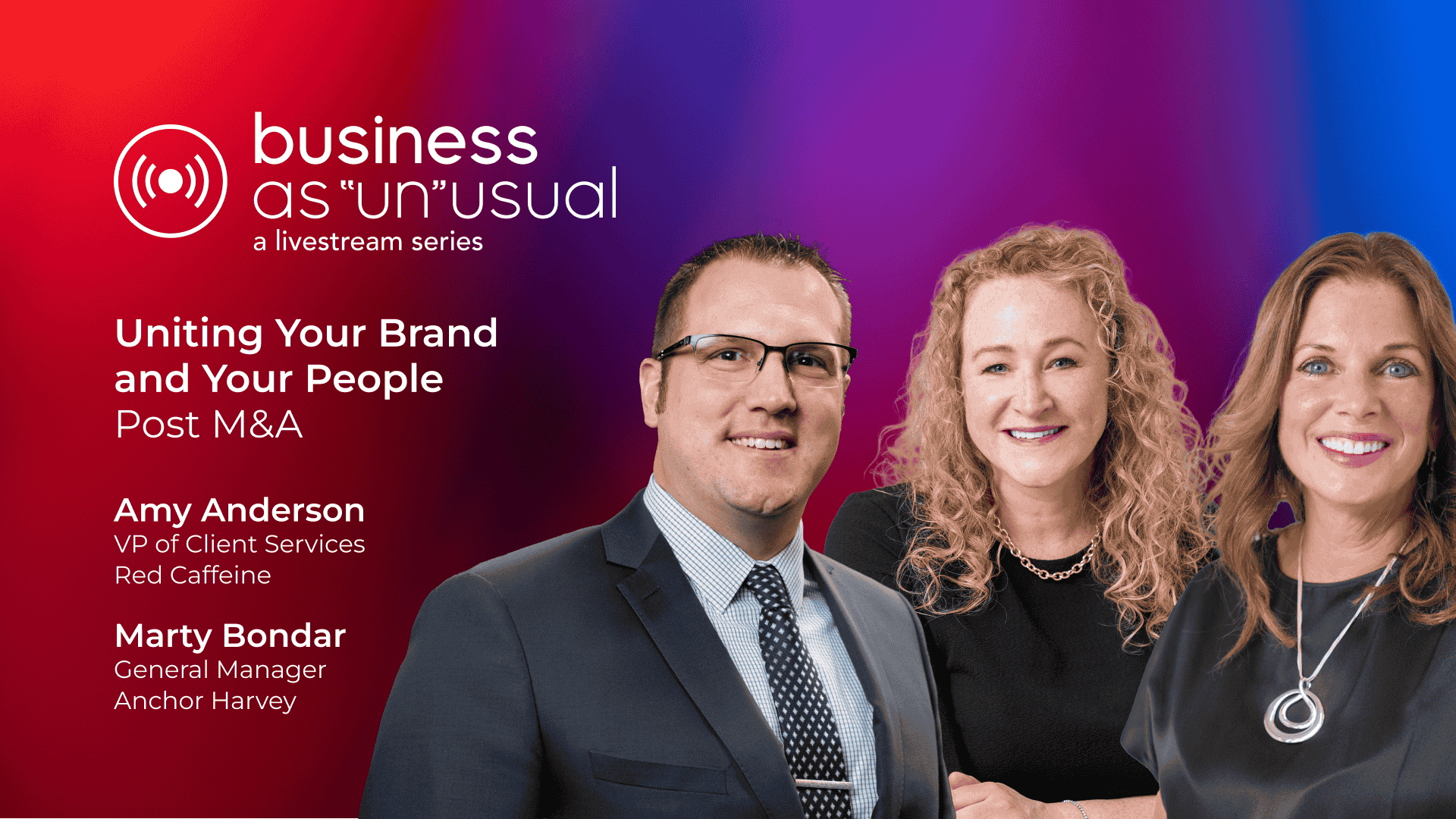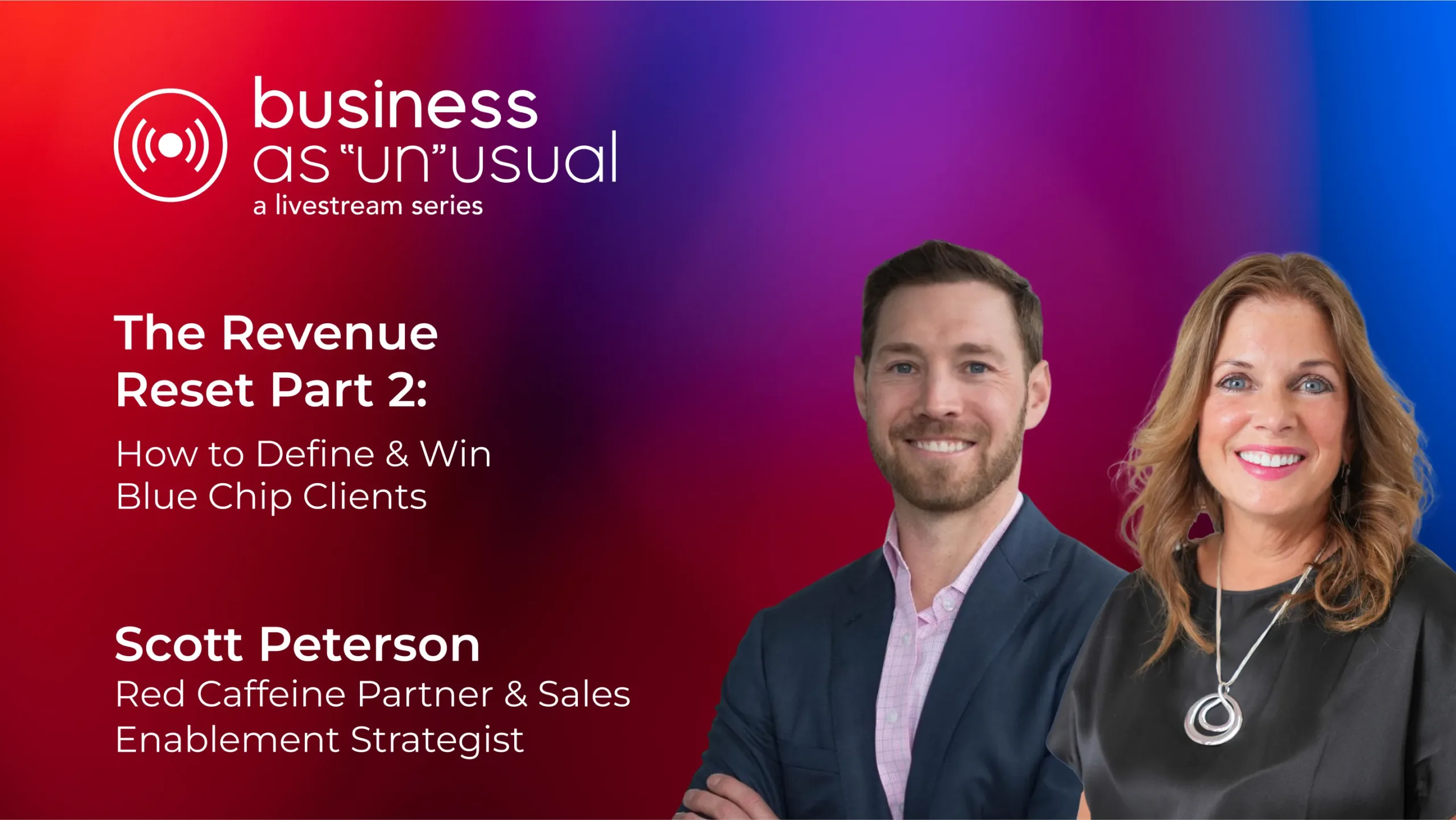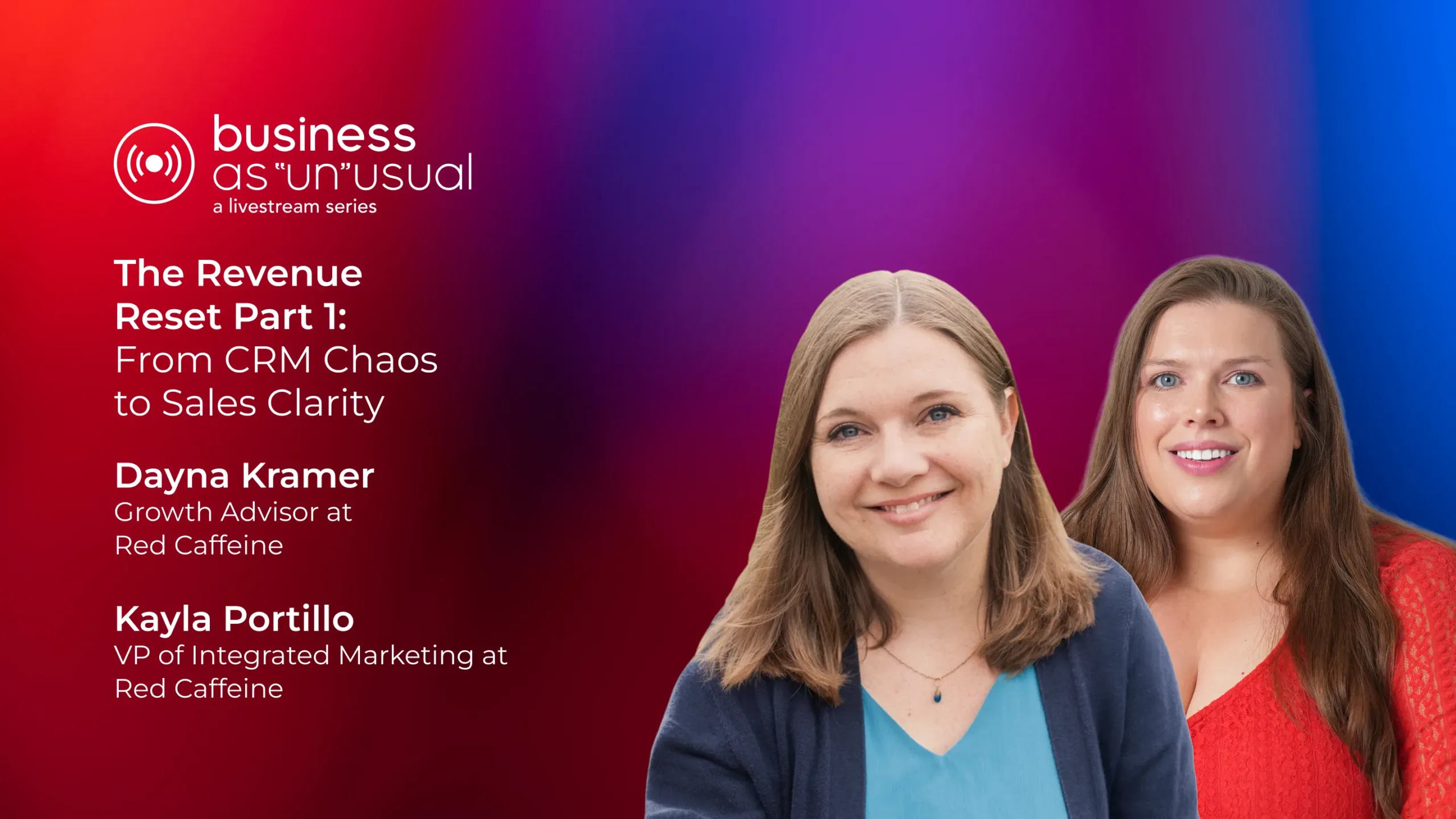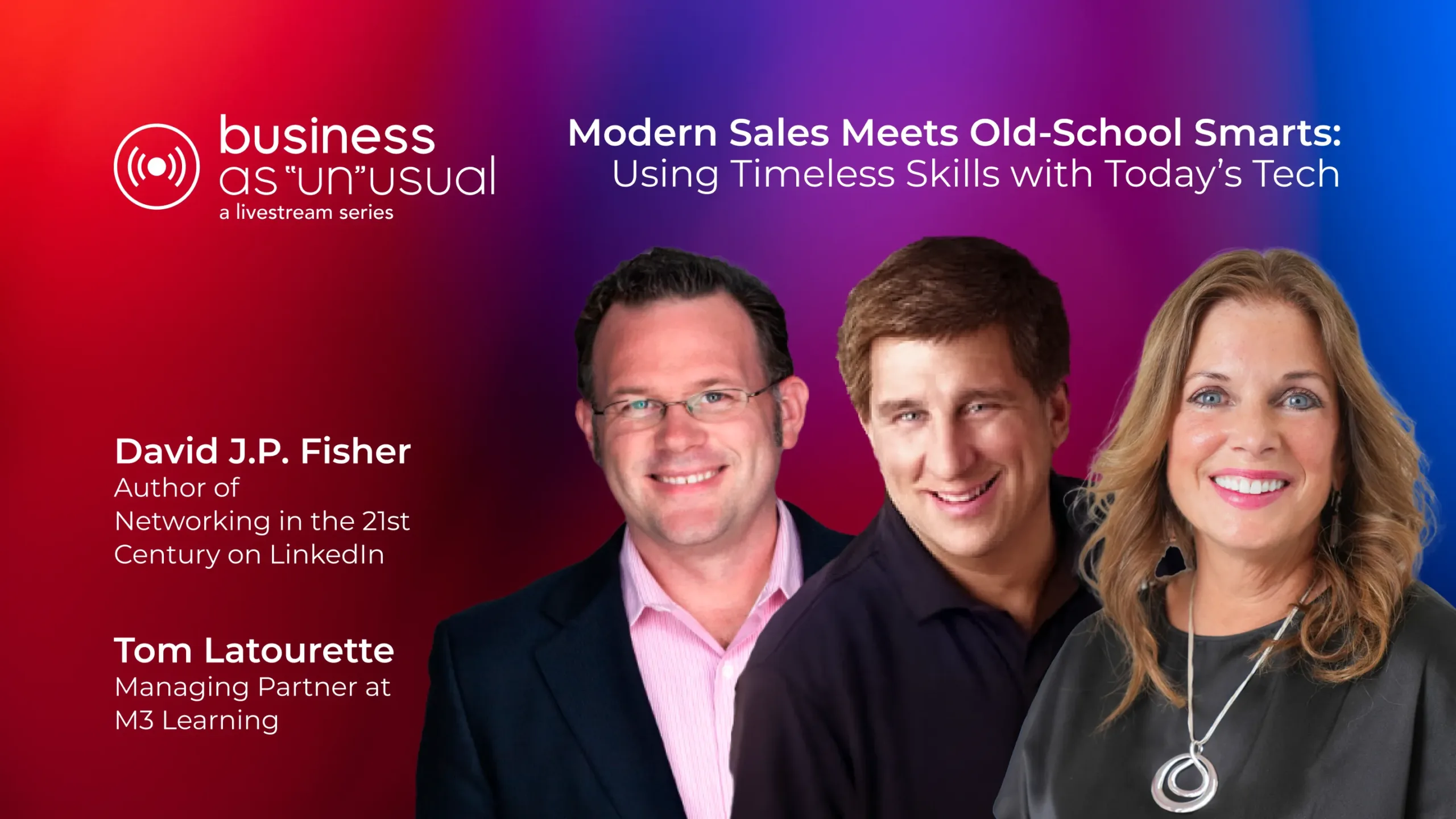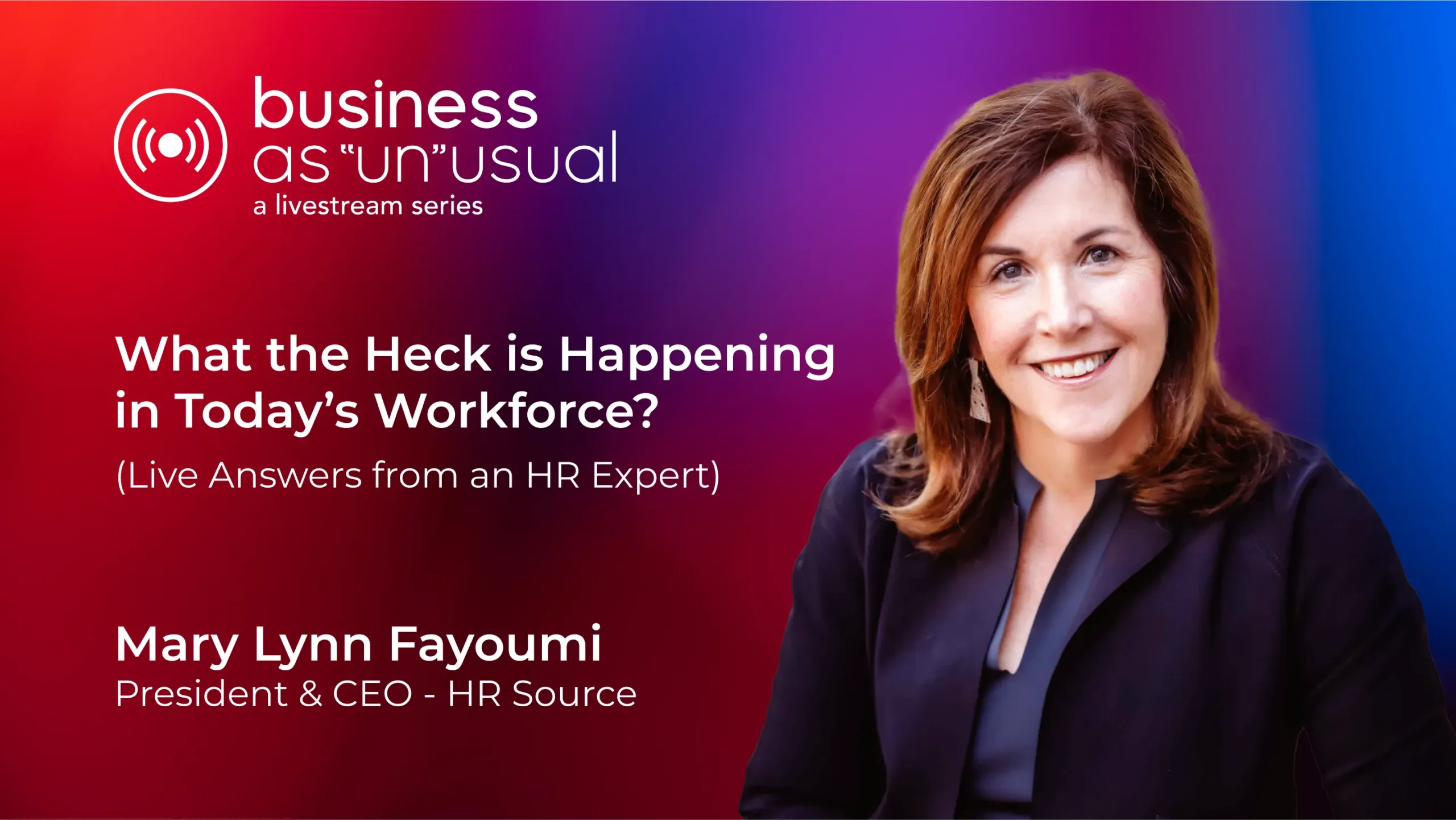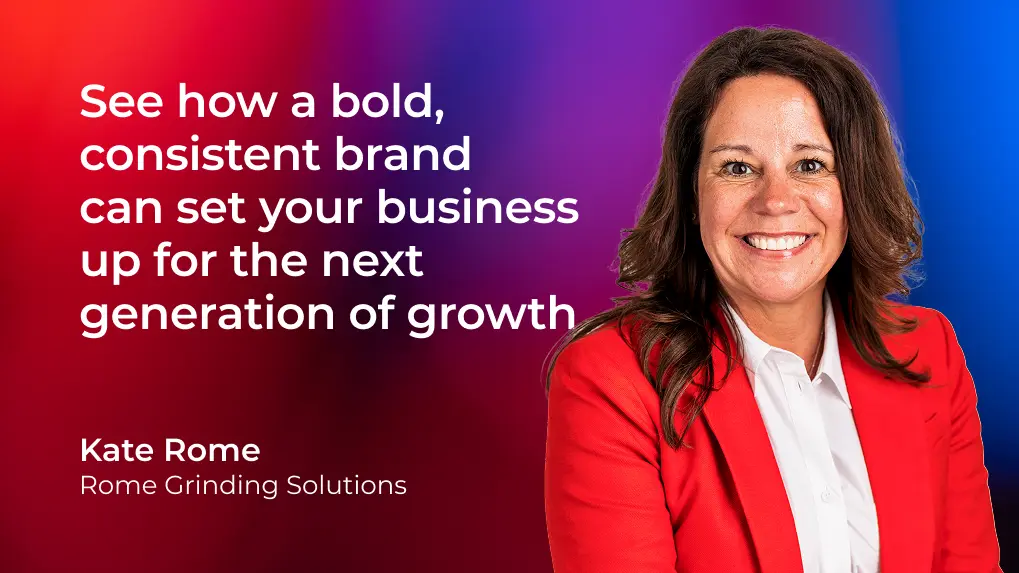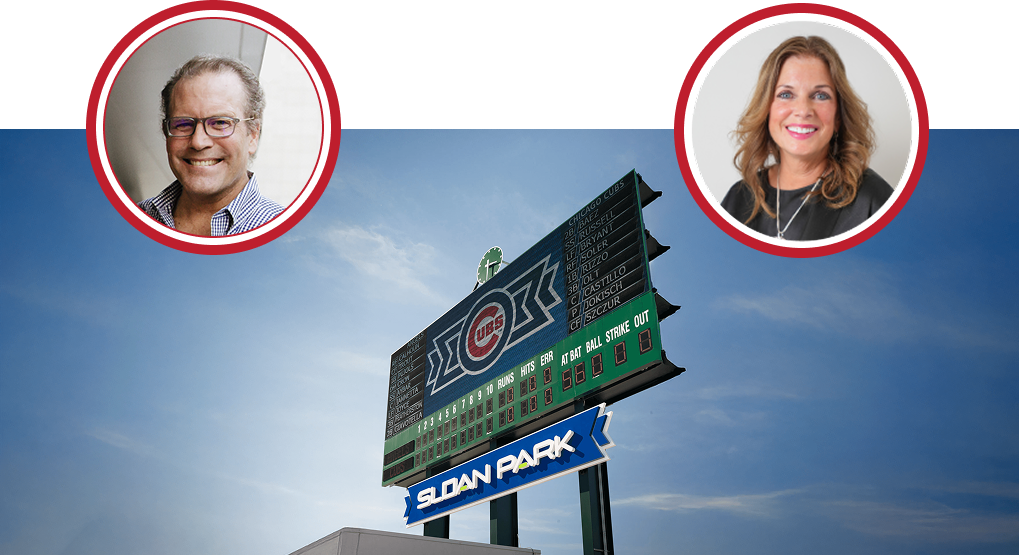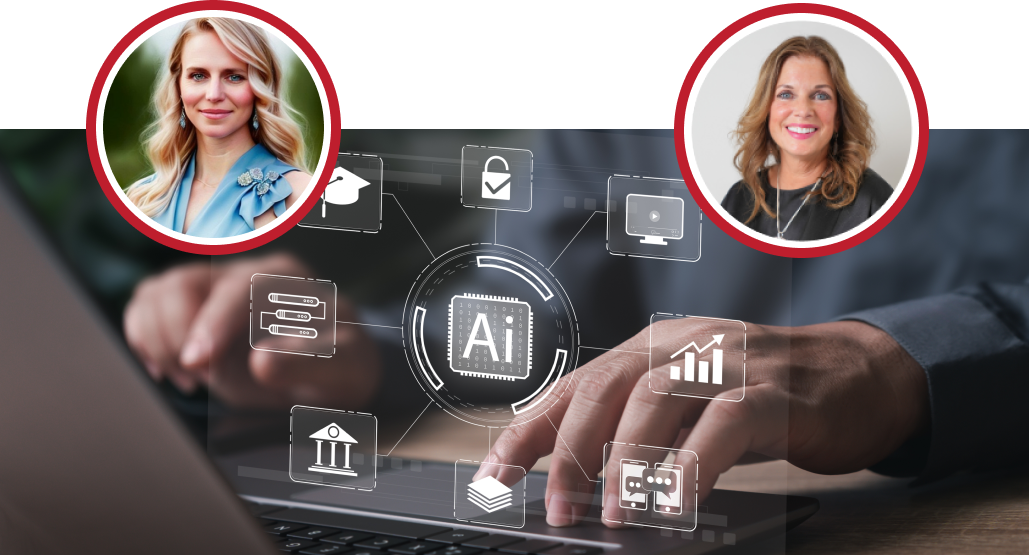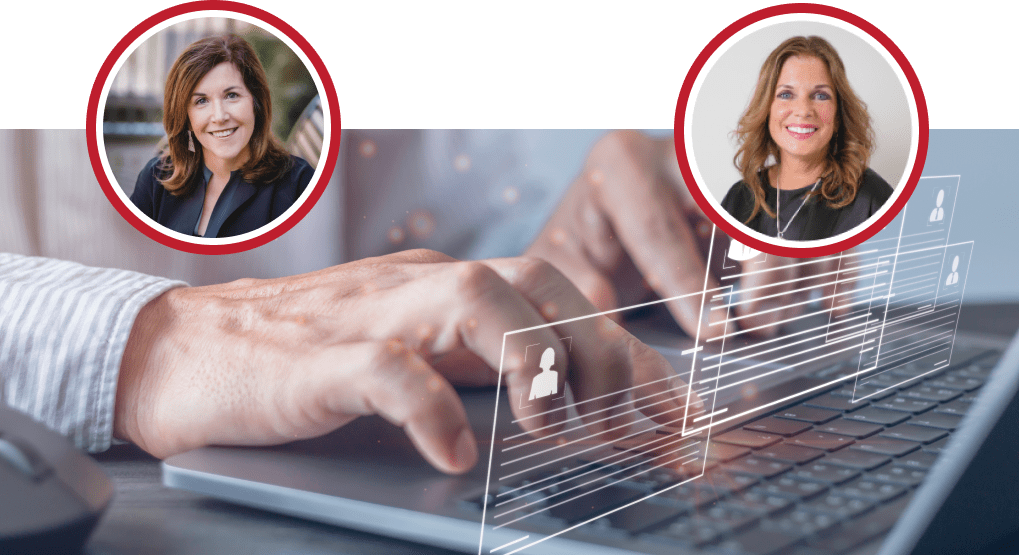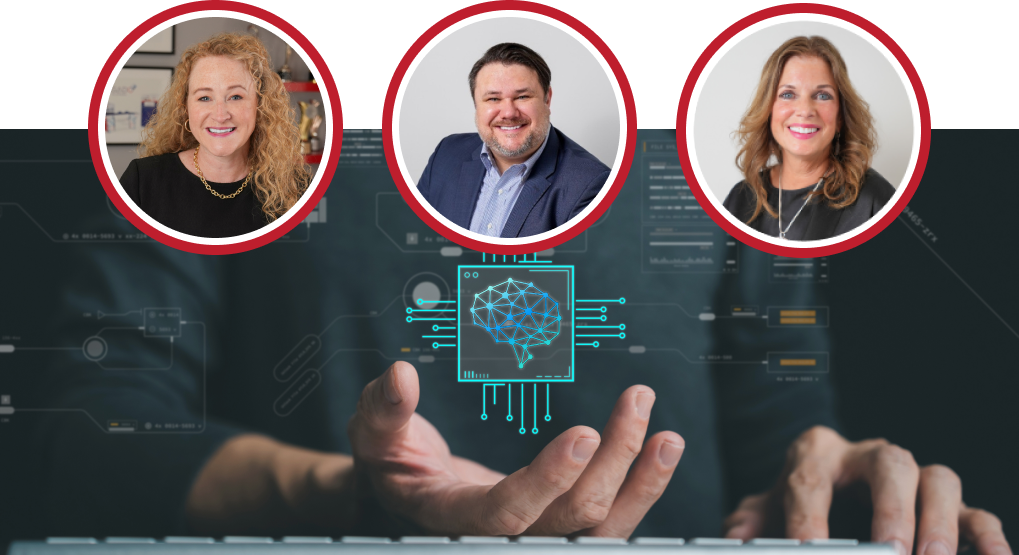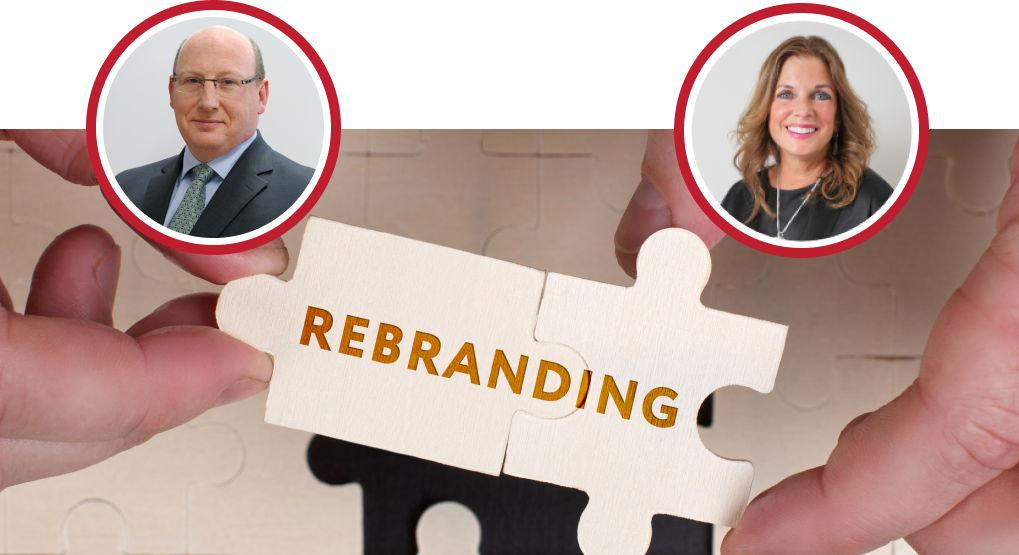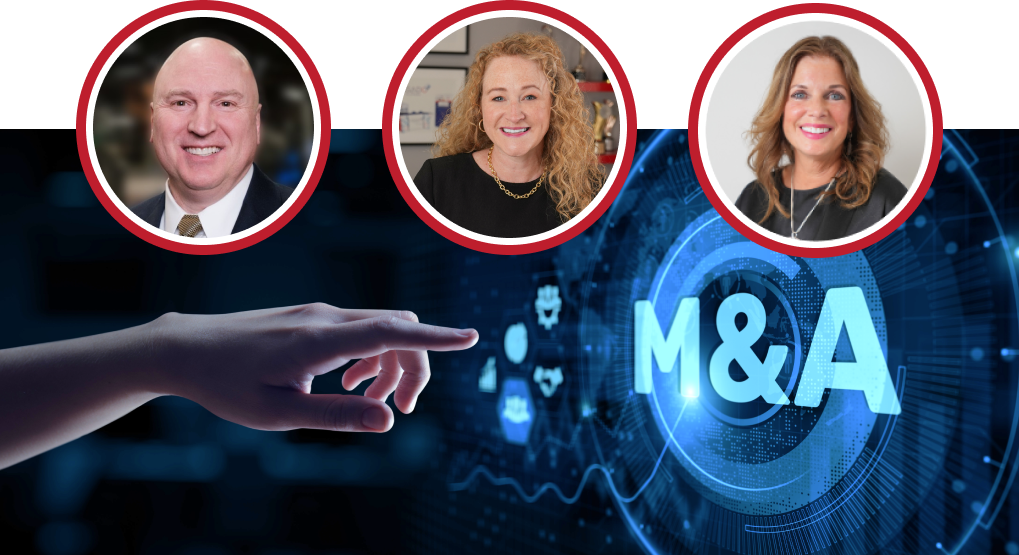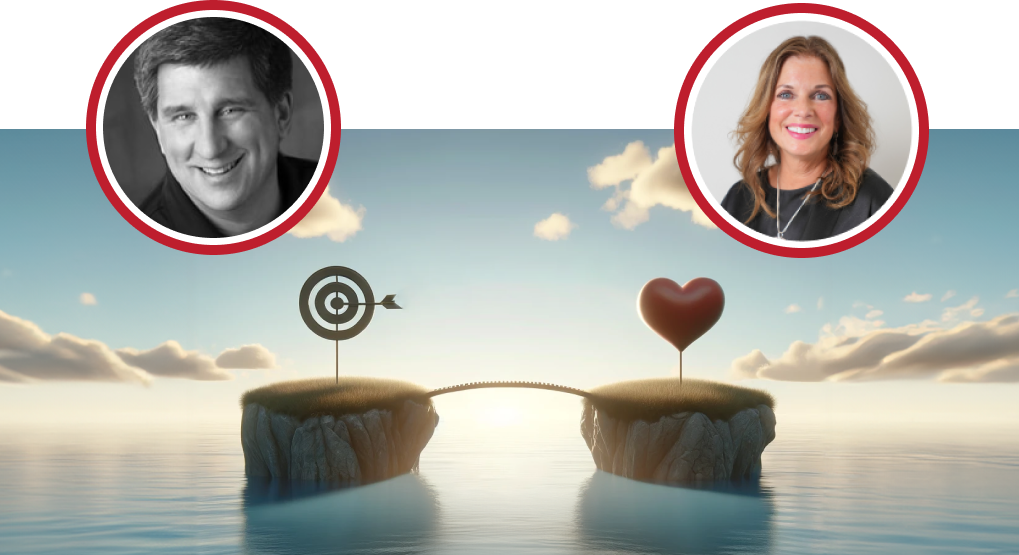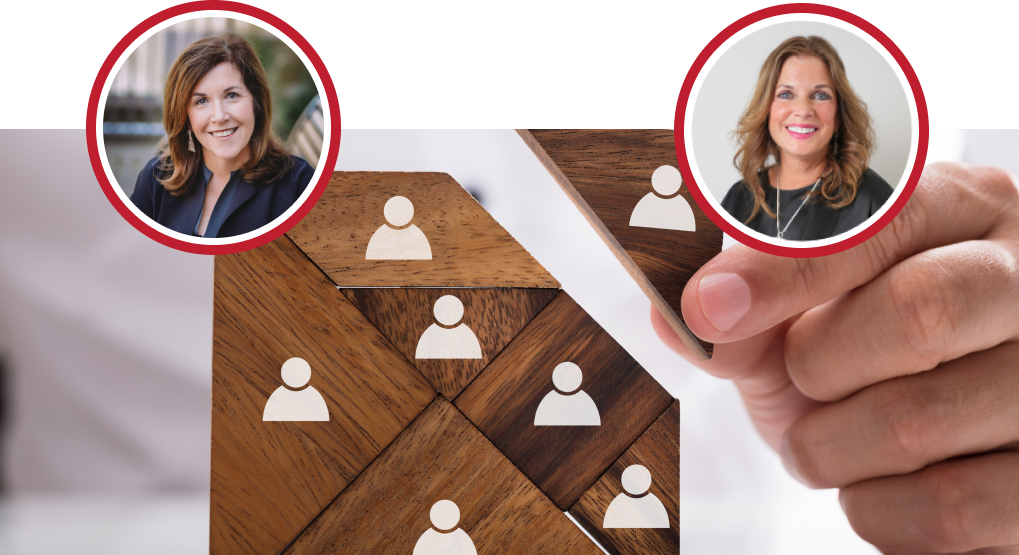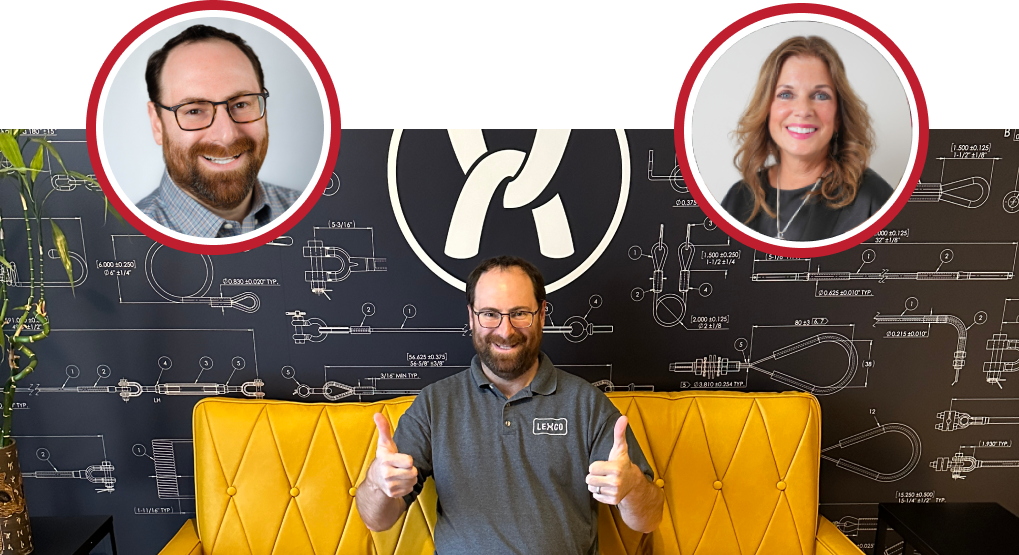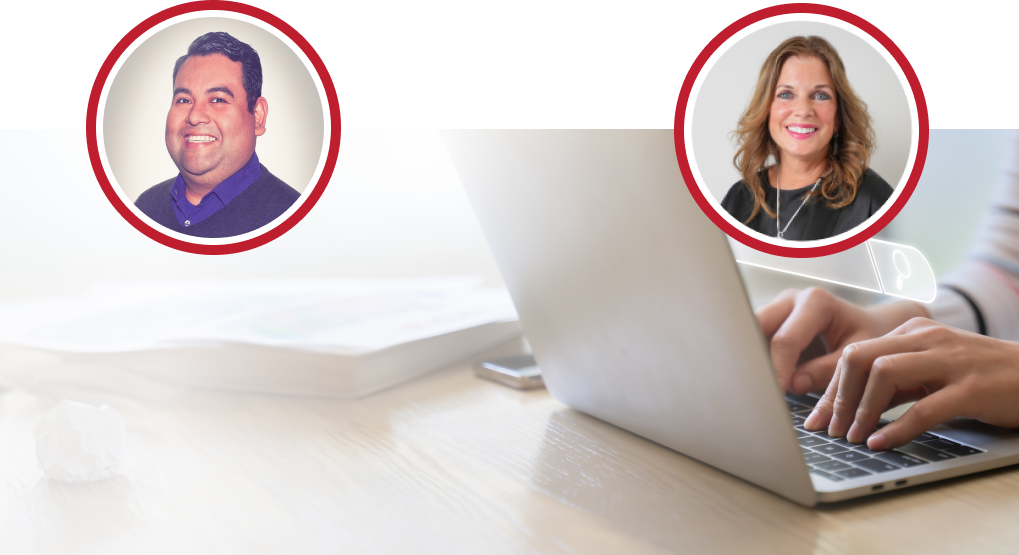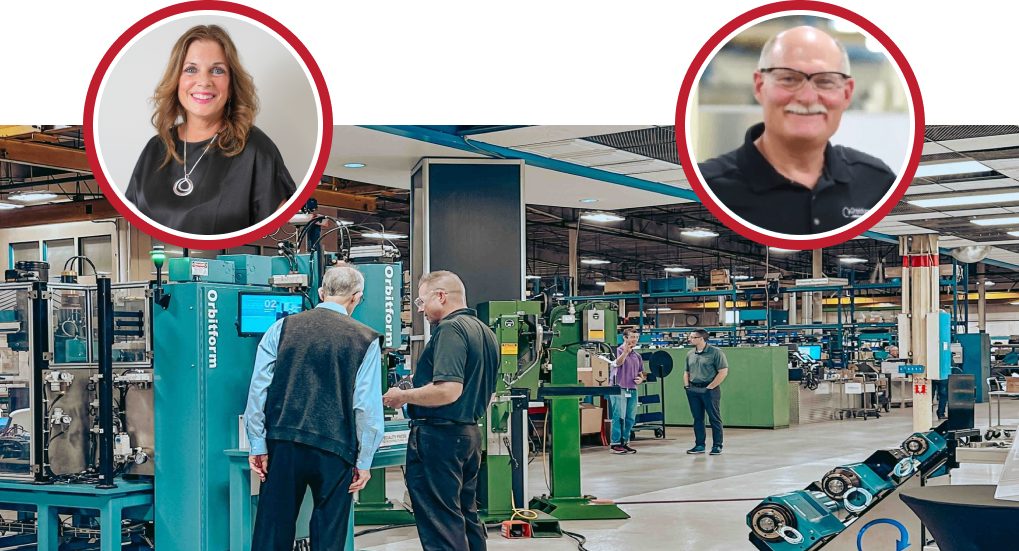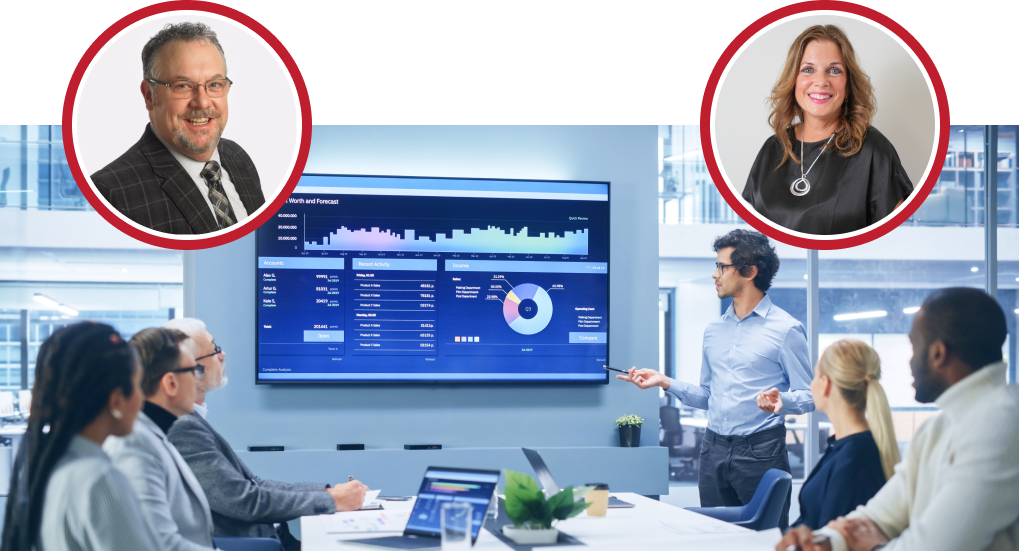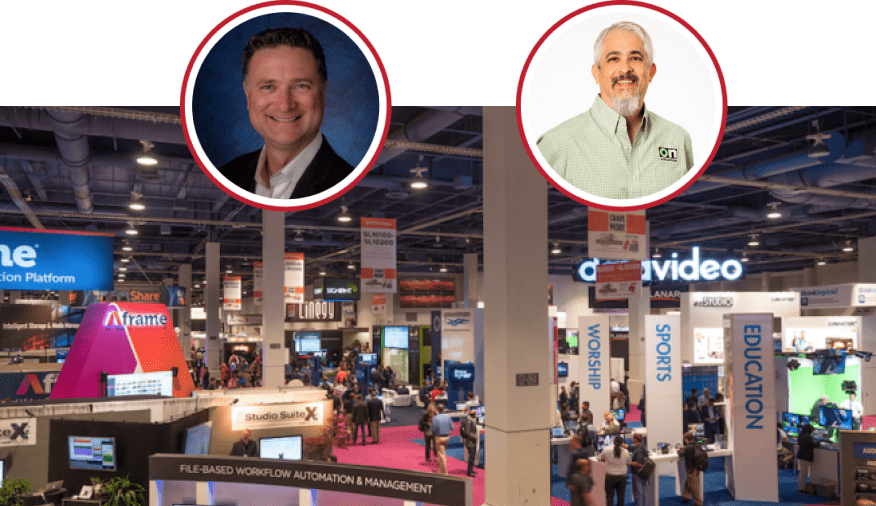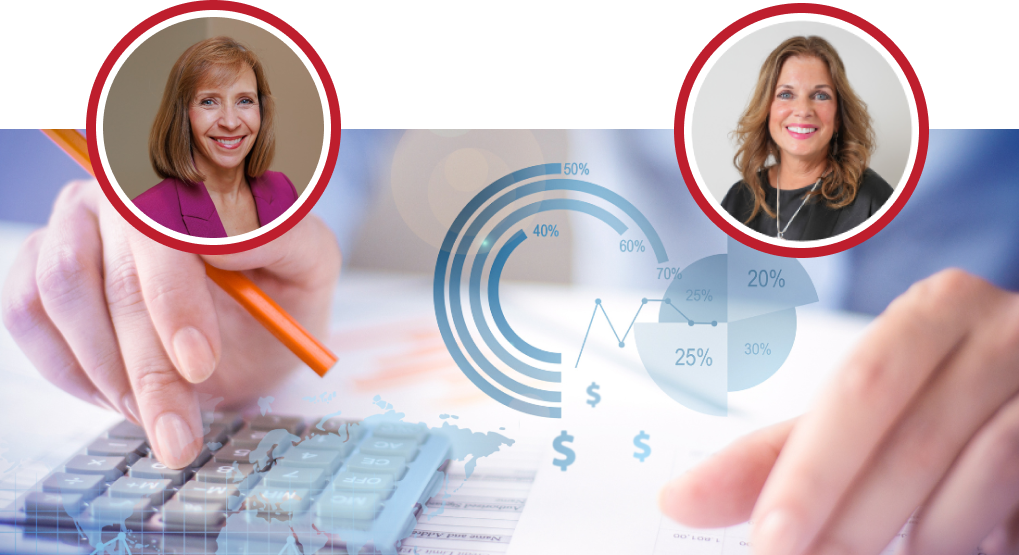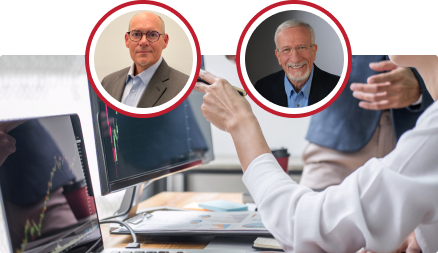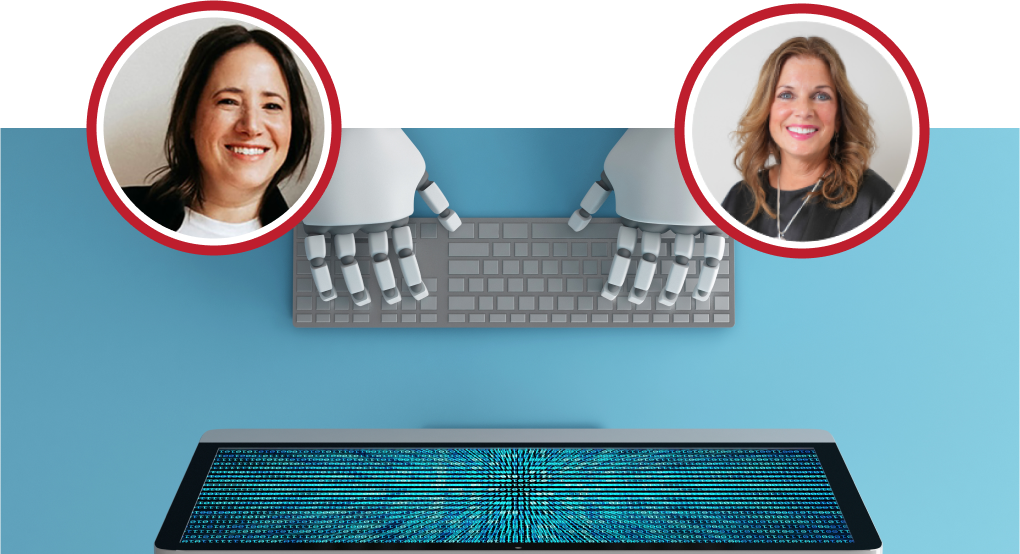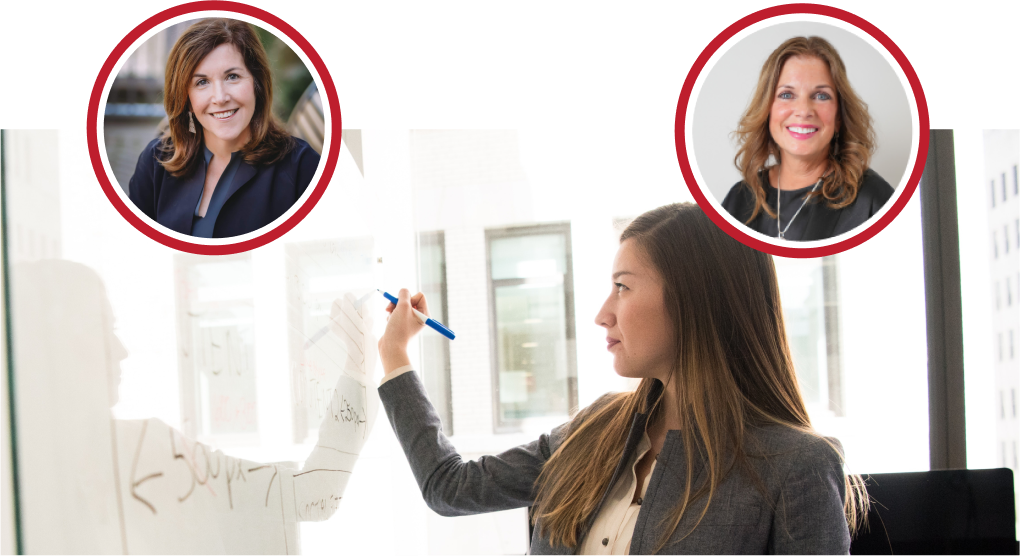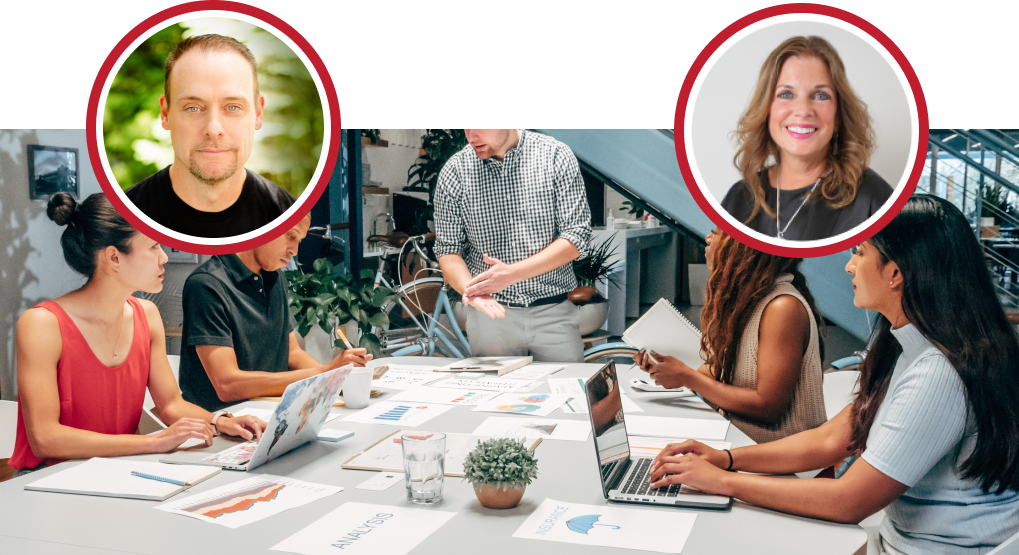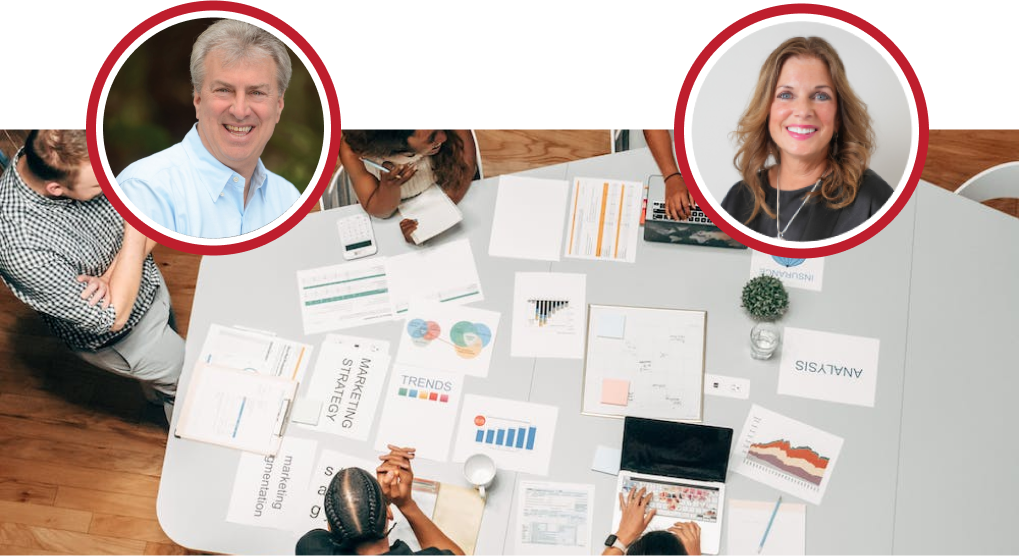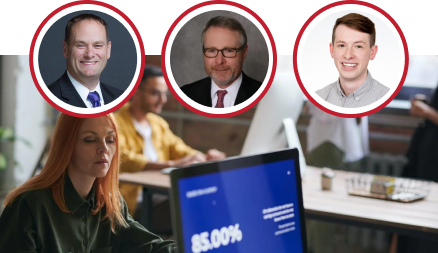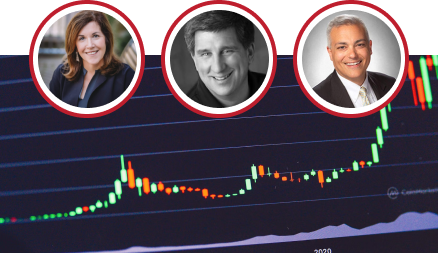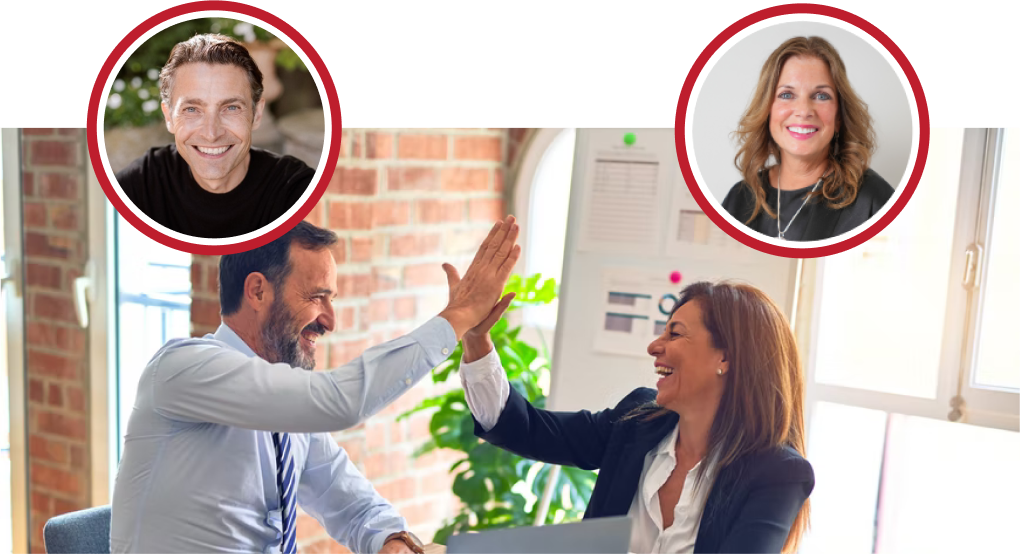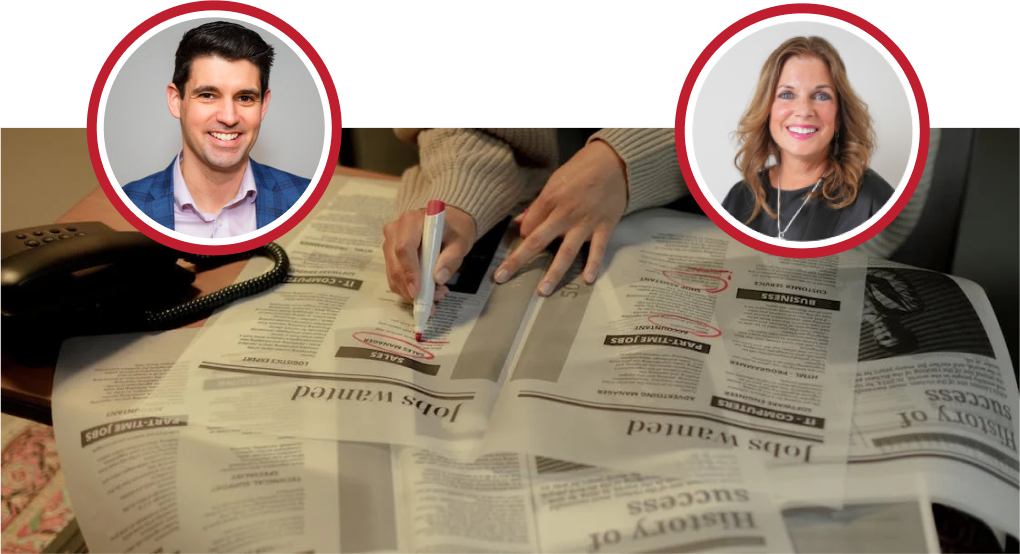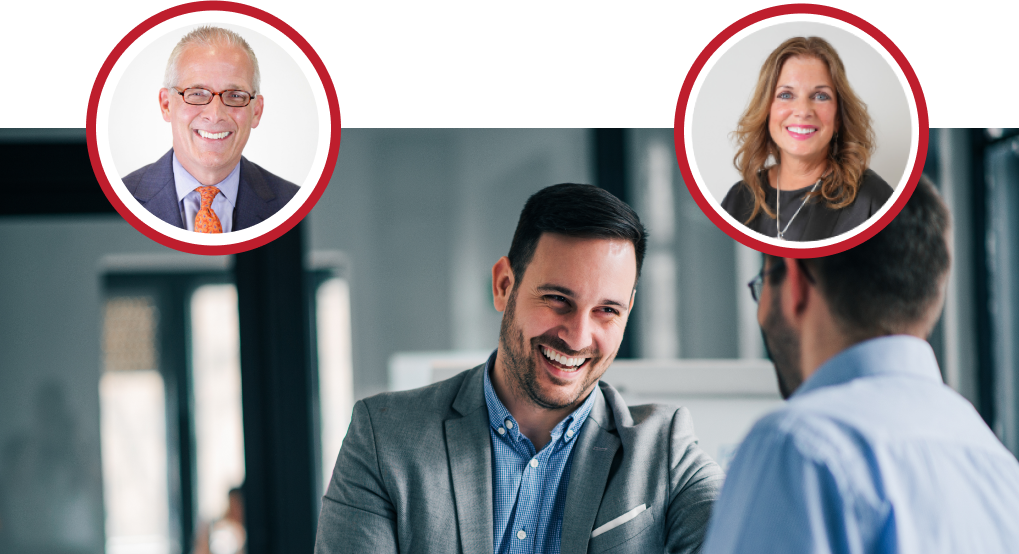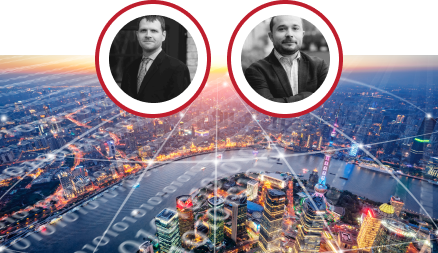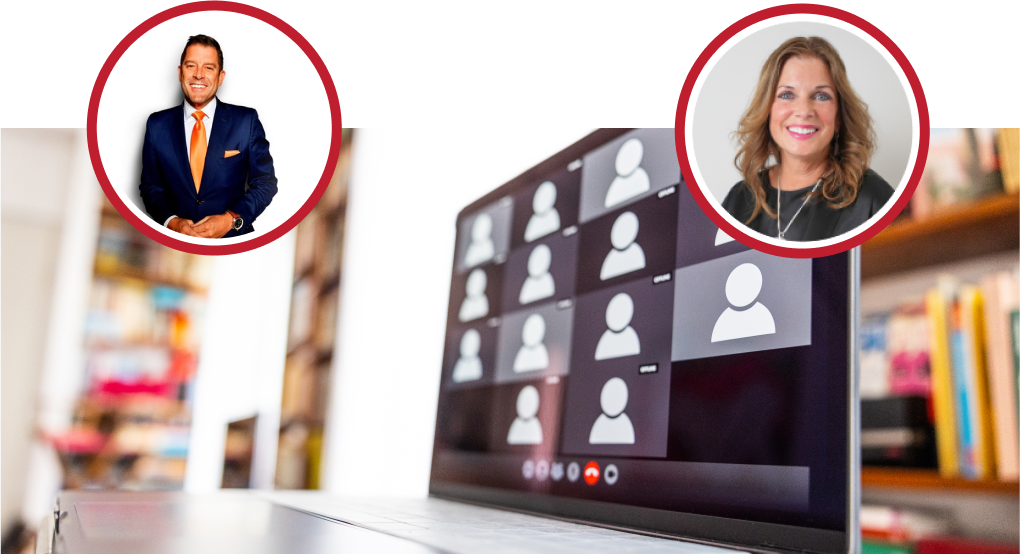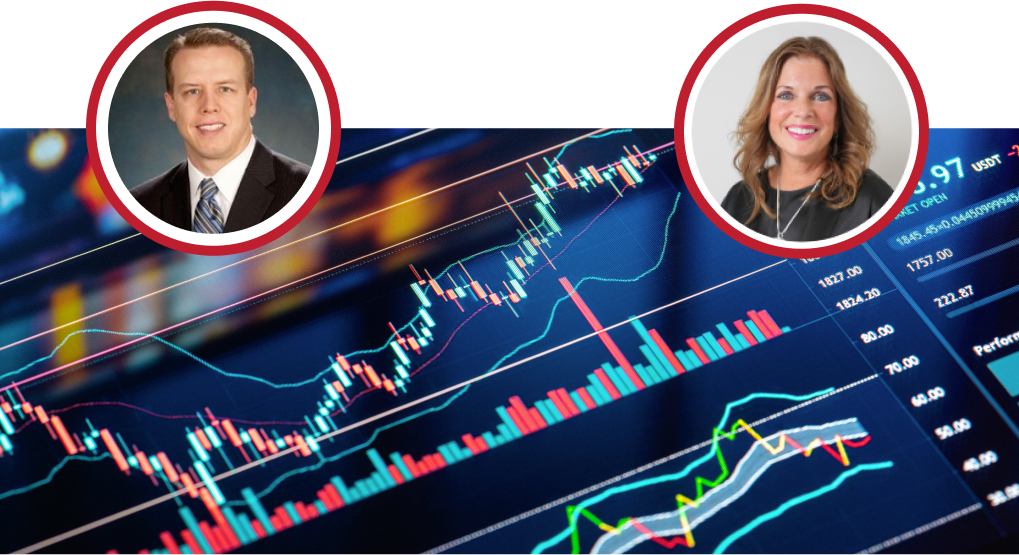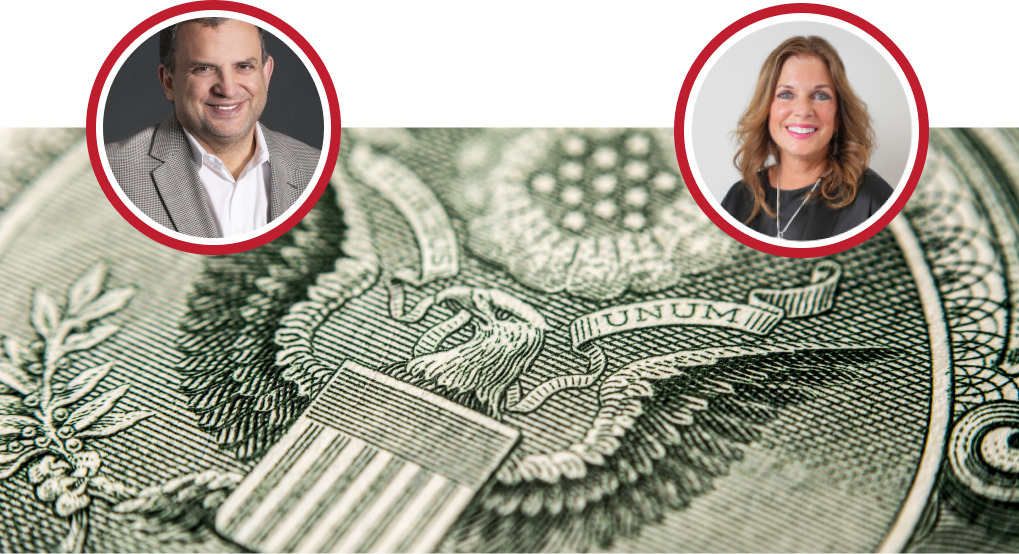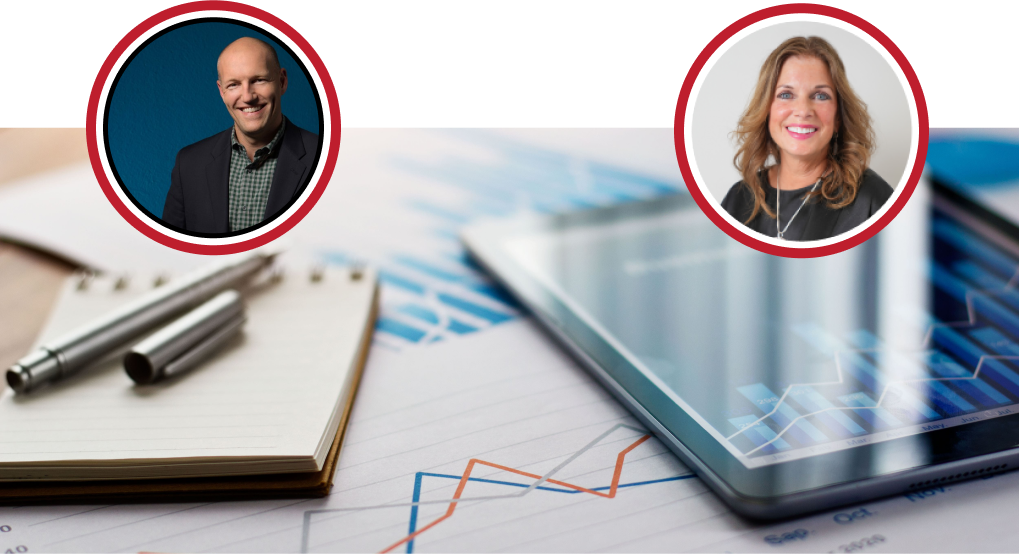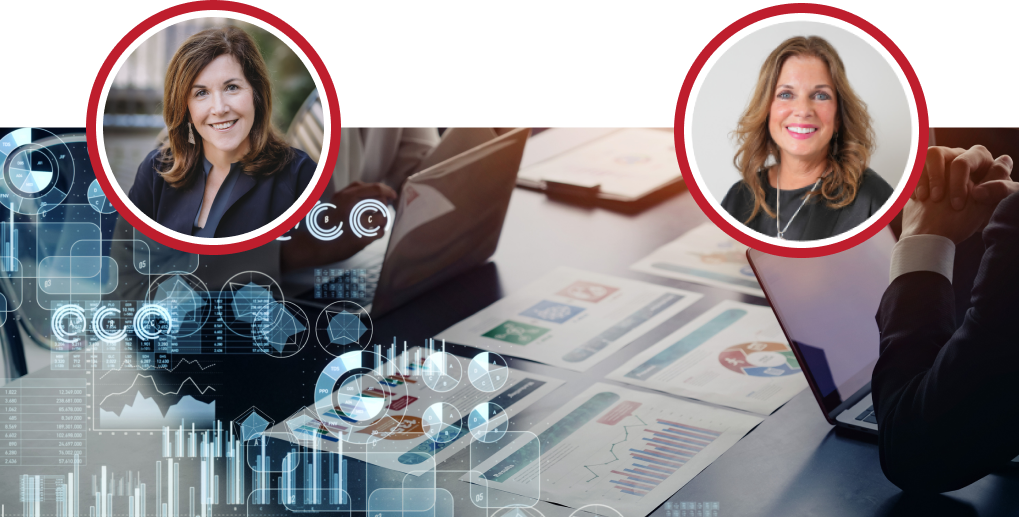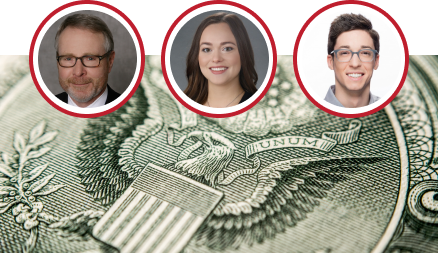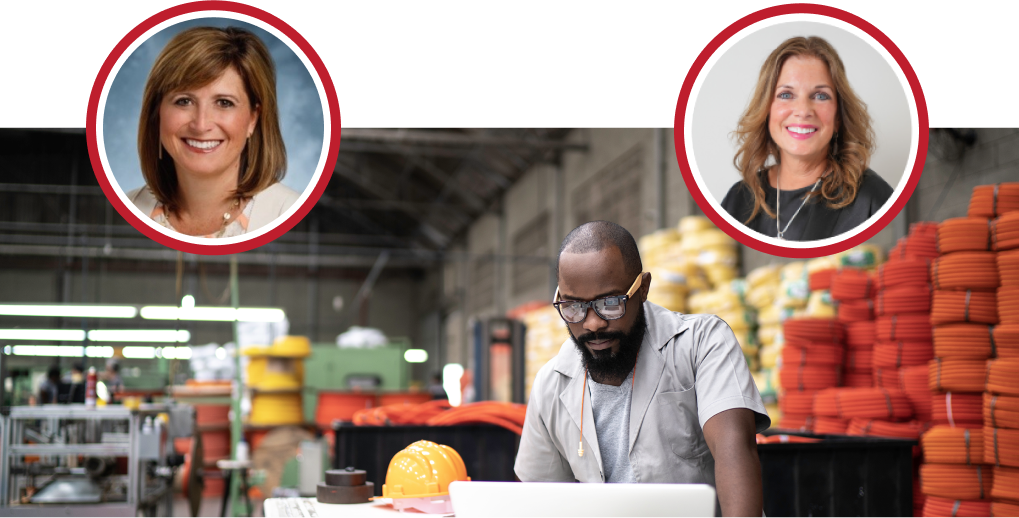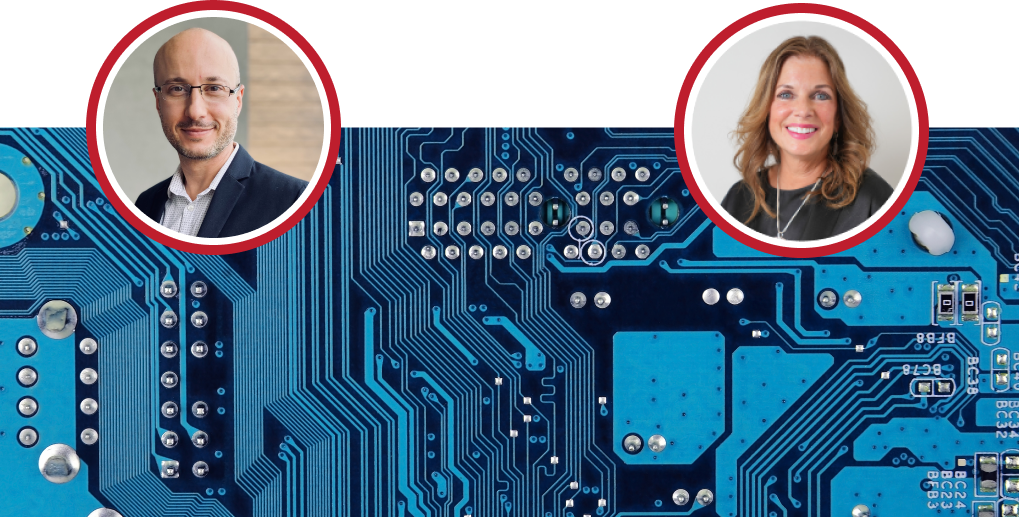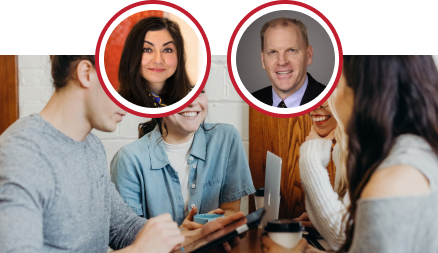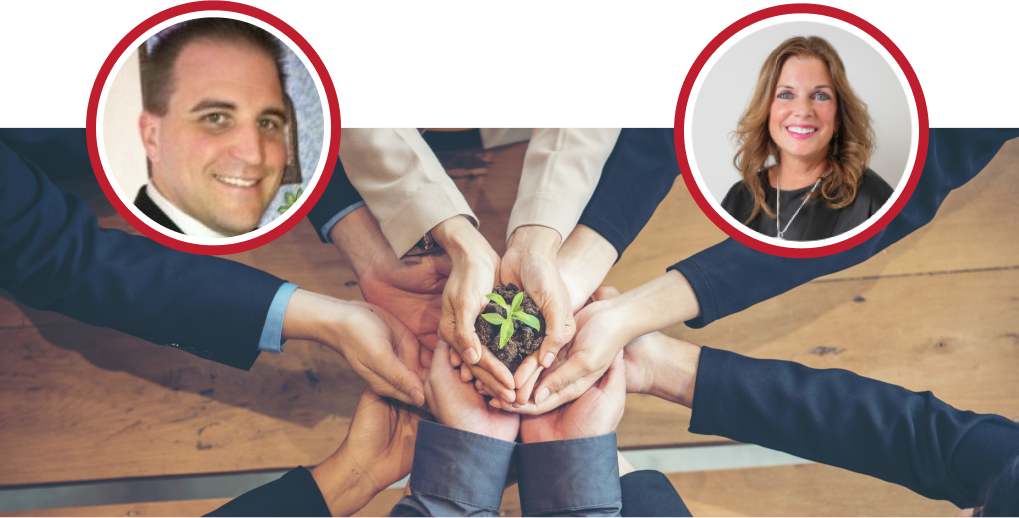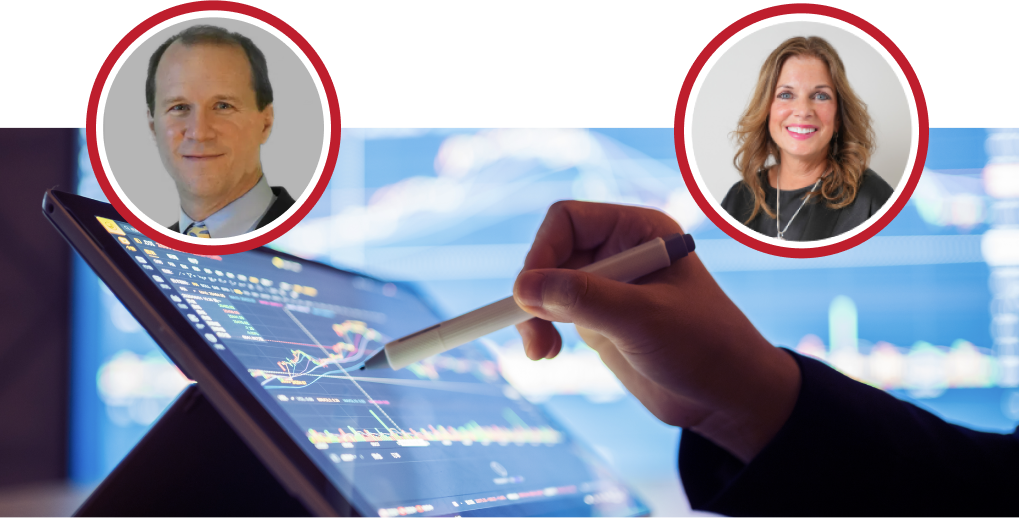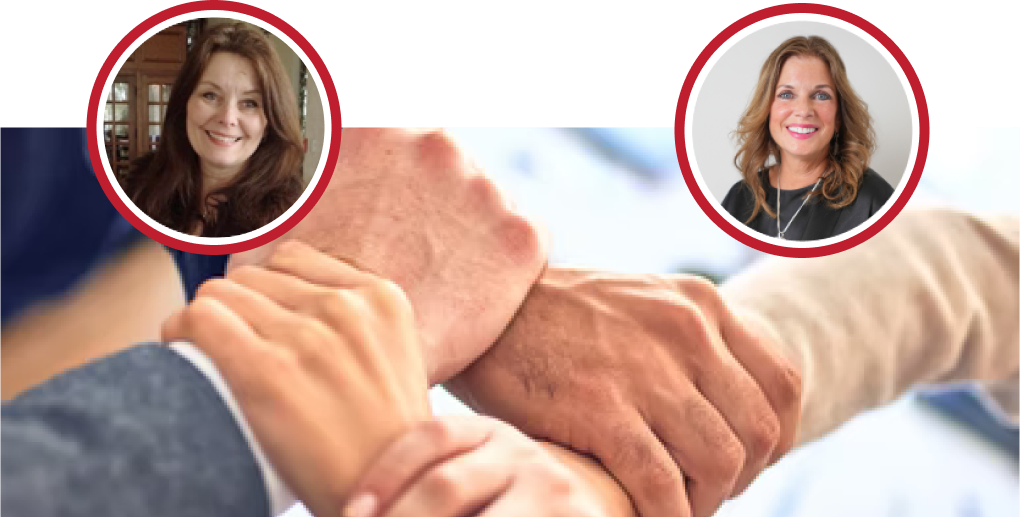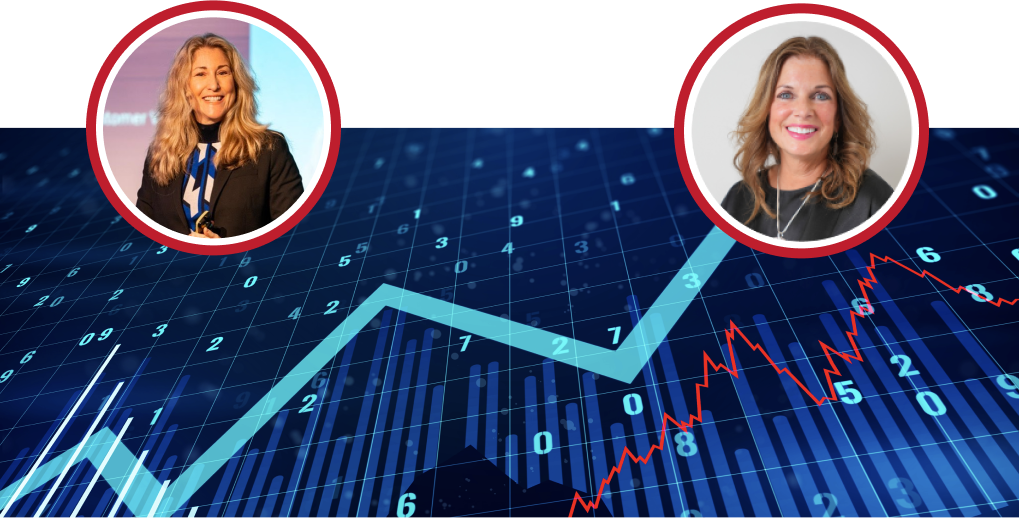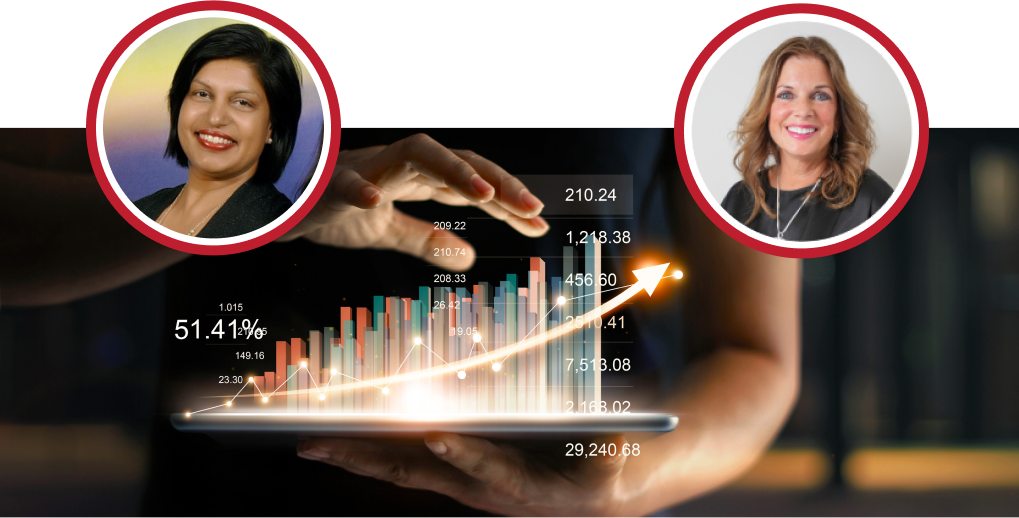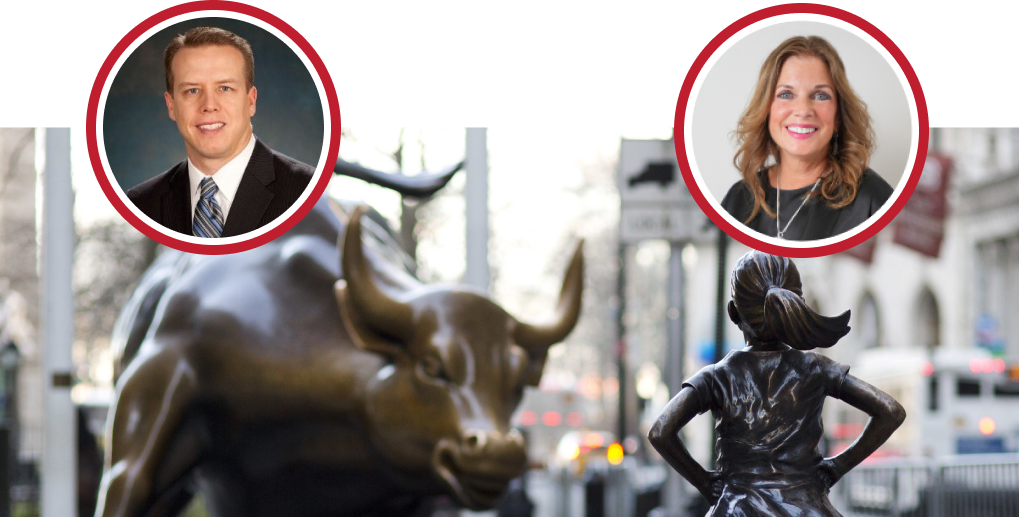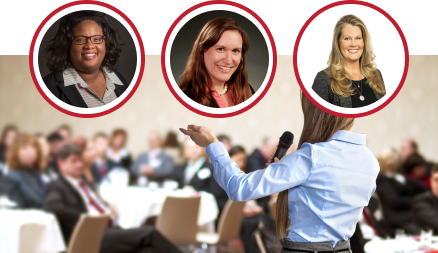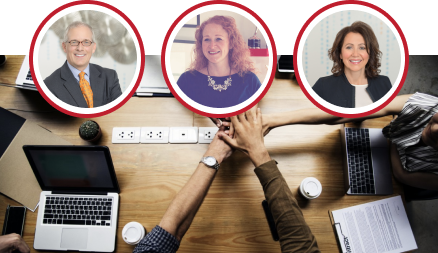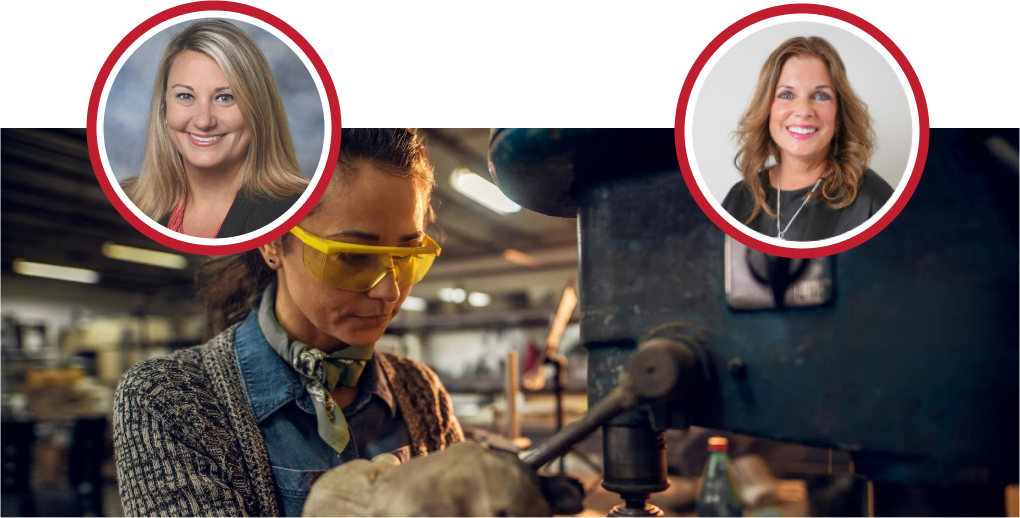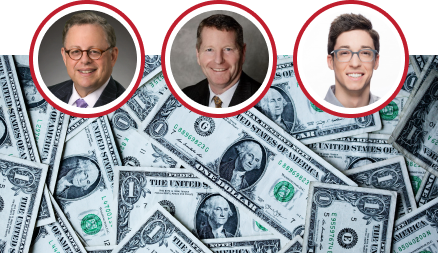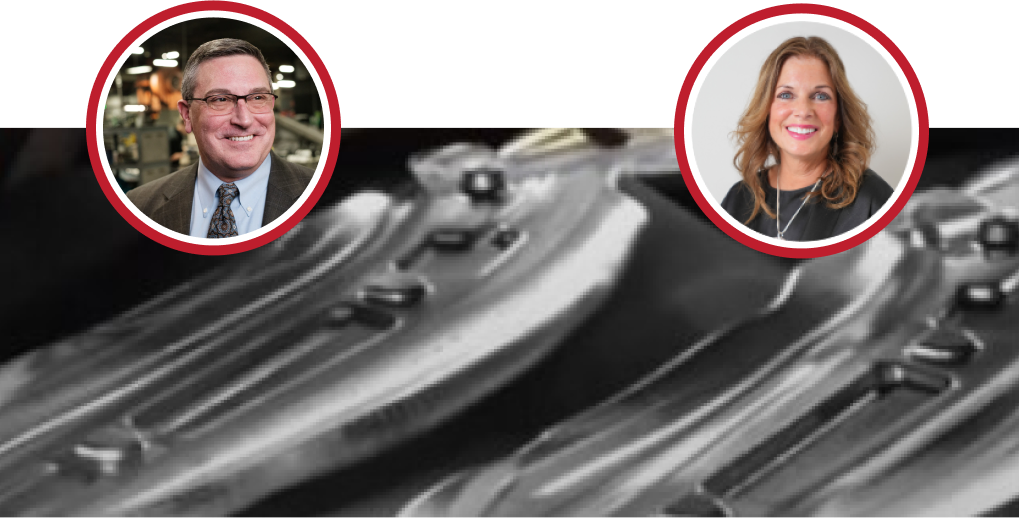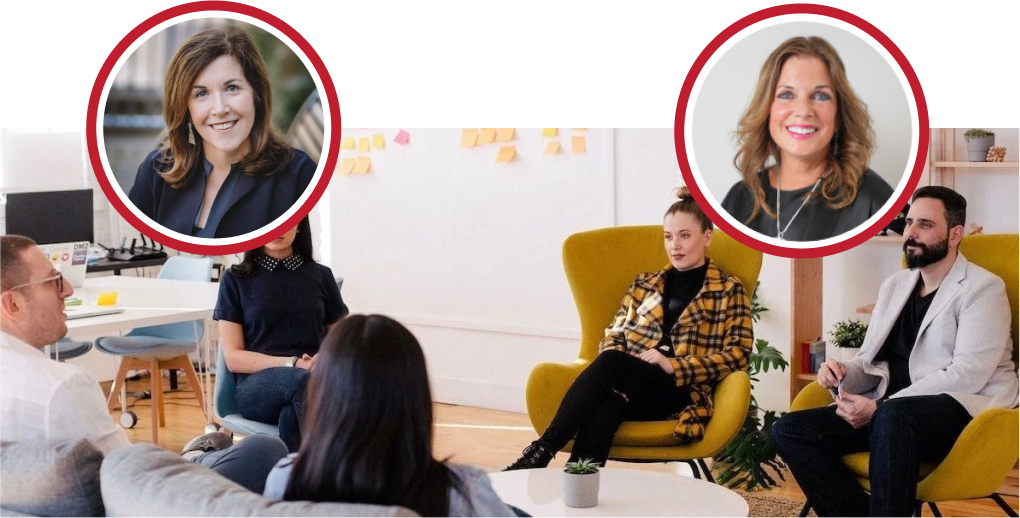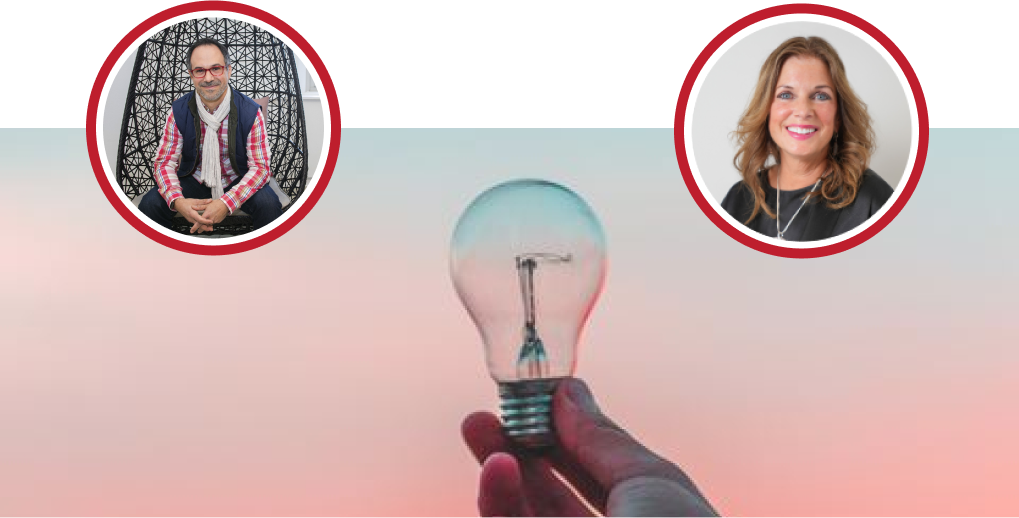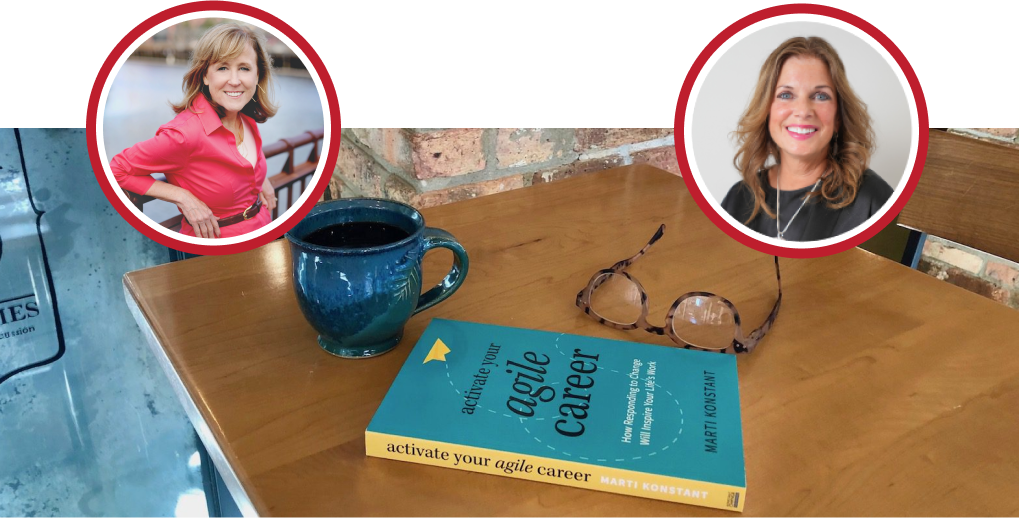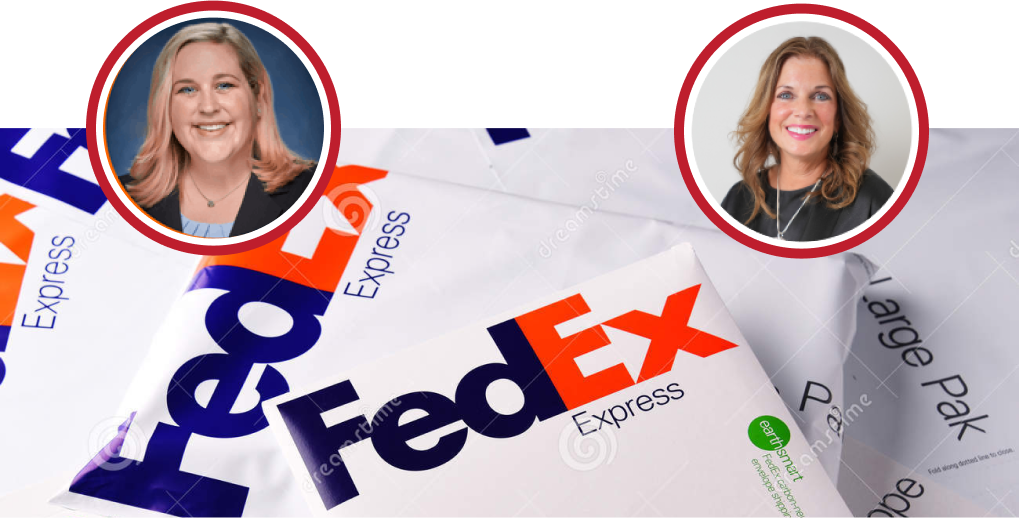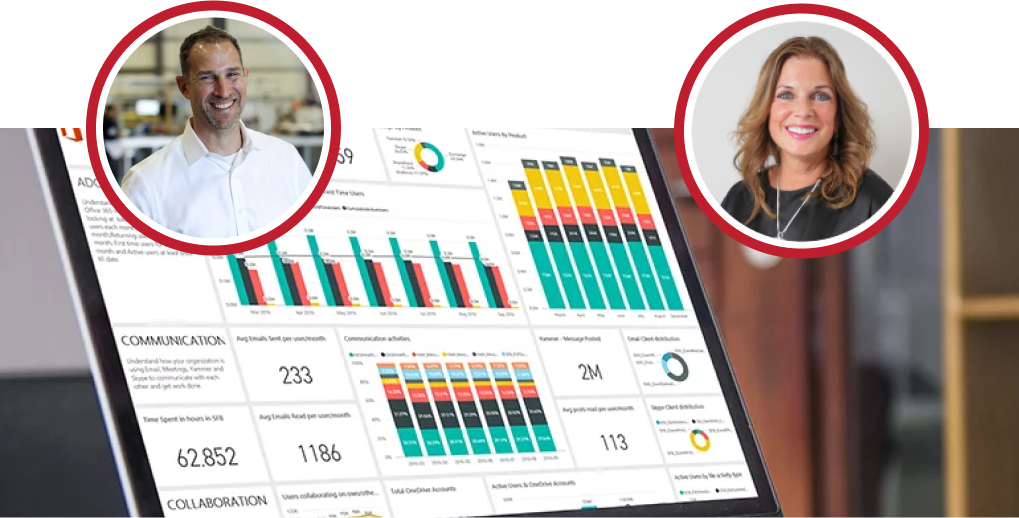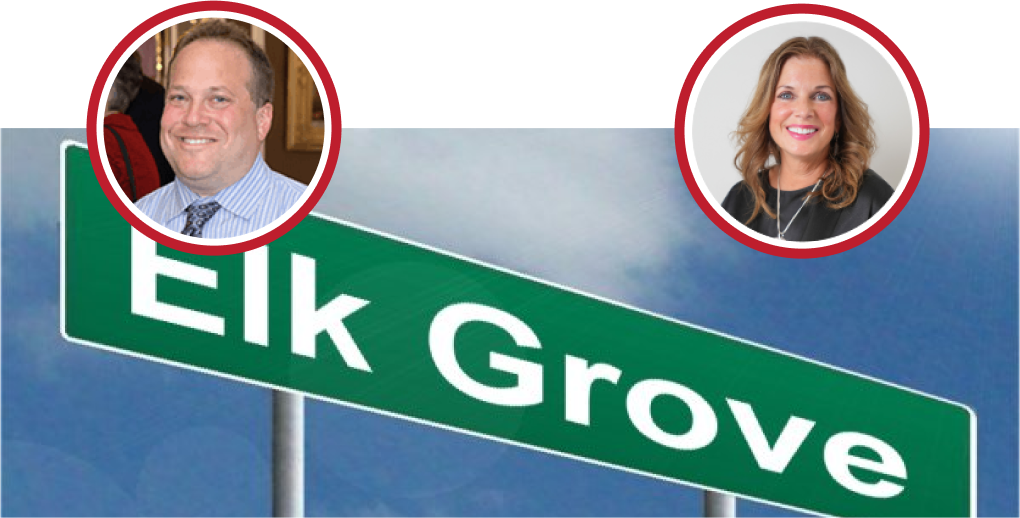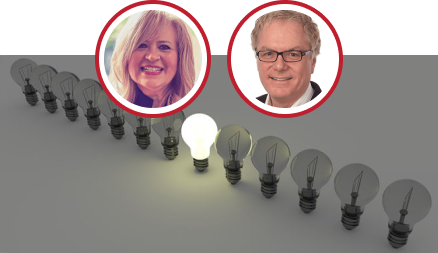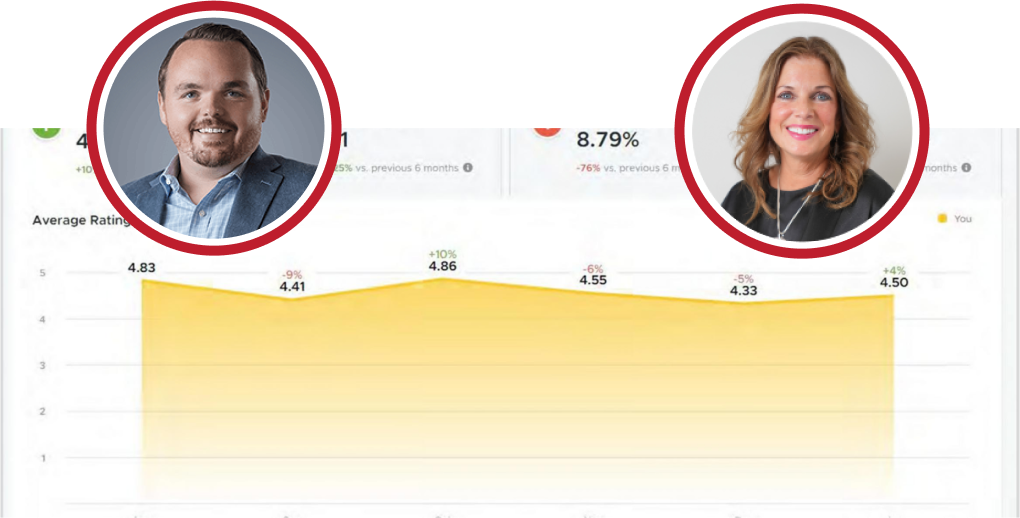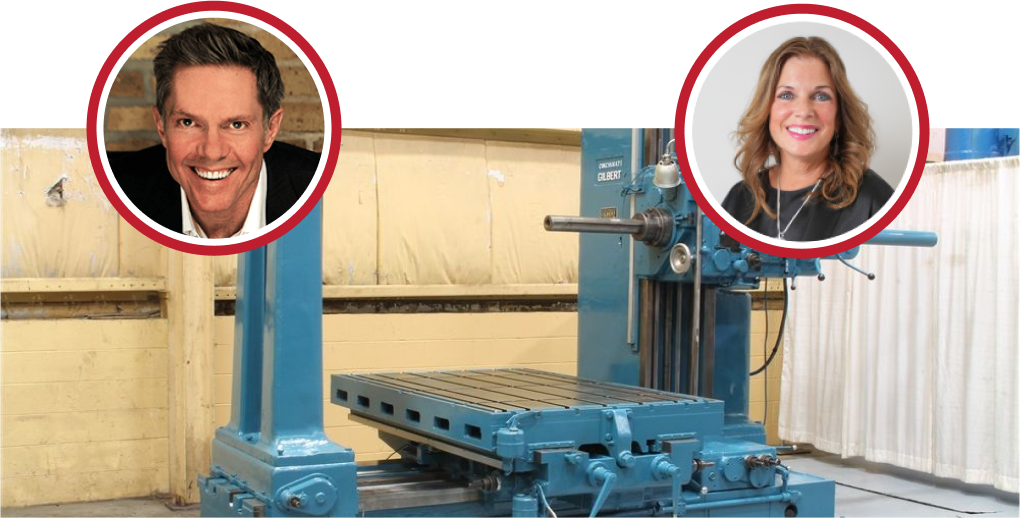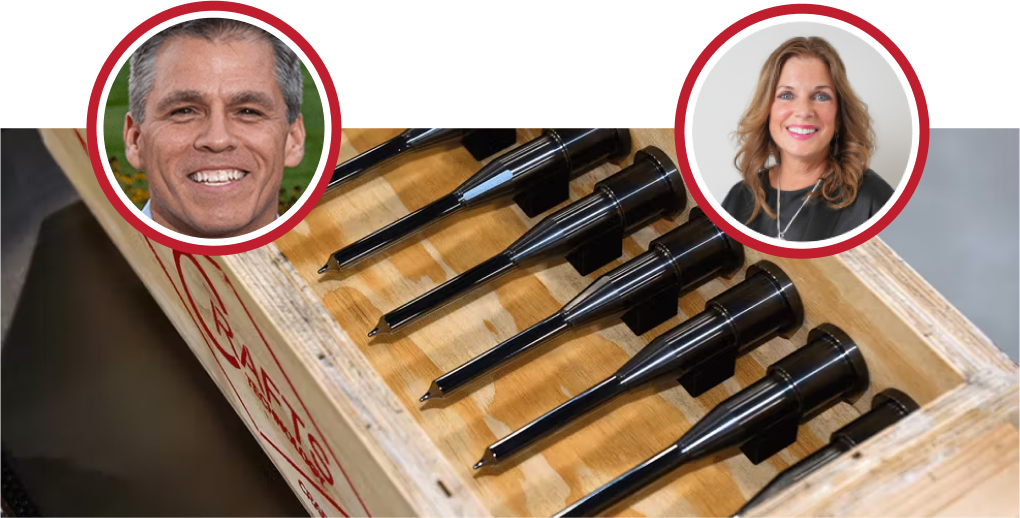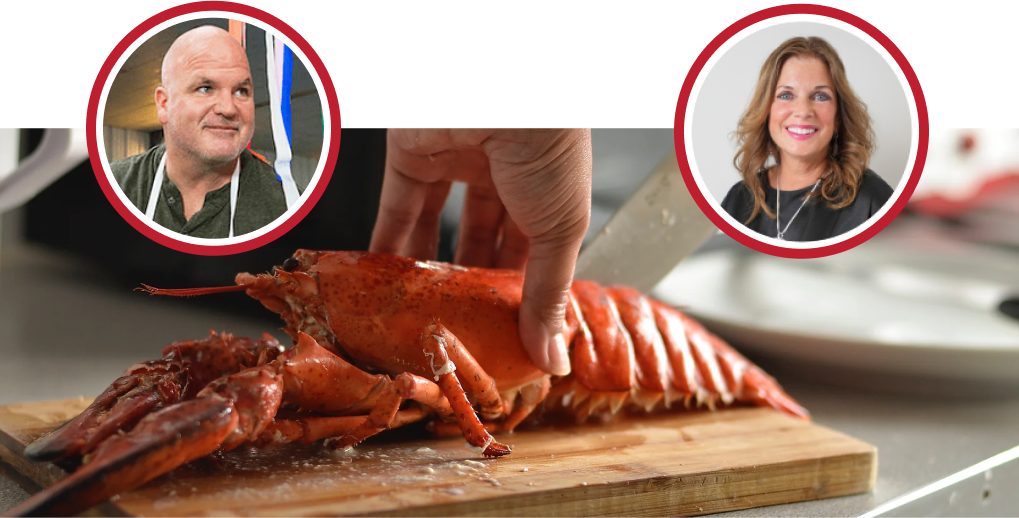Lisa: All right! Well, we’ll go ahead and get started. Good afternoon, everyone, and thank you for joining this episode of “Business As Unusual,” where we are speaking to badass leaders in today’s economy, learning more about how they’re providing innovation and inspiration in their business and what we can learn from them. I’m Lisa Behning, one of the Account Managers at Red Caffeine, and I’ll be your moderator for today’s session. We are extremely excited to have today’s presenter here as we were just talking before our webinar started today, thinking about how important social proof is today, especially since we are in this time of social distancing and not able to actively go maybe drive by a business or even speak with other people face to face as we normally would, and it’s not just for our B2C decisions when we’re thinking about buying a new car or home we’re also taking this type of decision making back to our offices when we’re looking at B2B as well so get ready for a great session and lots of practical advice you can take back as a view-house keeping things. We do have everyone on mute today. So, please use the chat function or the Q.A. option to ask any questions. I’ll be gathering those throughout today’s session, and we’ll have those at the end for our Q.A. portion next as we turn things over to our presenter Kathy Steele. I wanted to give a shout-out to some of our restaurants today as part of our webinar; we are offering the first five registrants free lunch on us in an effort to support restaurants across the U.S. So, thank you to our first five registrants today. I look forward to seeing what you order for lunch. So, we can give them a shout-out on our website, but taffy as I send things over to you today, welcome; I hear you are eating at Shannon’s Deli, which is one of our local favorites. So, good afternoon and if you like to introduce yourself and our speakers today, I’ll continue on to the next slide.
Kathy: Yeah, thanks, Lisa. Yes, I’m eating at Shannon’s today for lunch. We’re still waiting for a lot of our local restaurants to reopen, but they have been doing a great job of working through some of the last few months and staying a thriving business in our small downtown area outside of Chicago. So, I’m still excited to have my friend Chris Campbell on today; he has been such a just great resource for me over these last few months as we’ve really shared a lot of thinking about running a business in a really turbulent time and I appreciate his friendship and a lot of business acumen and shared experiences through the last few months. So, thank you so much, Chris, for being with us. So, I want to tell you a little bit about Red Caffeine; we build badass brands that people want to work for and with, and it really is about building that incredible reputation that attracts the right clients and the right employees. So, I’m I think this is such a relevant topic, and Chris, can you just tell us a little bit more about review trackers as we kind of step into today’s content.
Chris: Sure. Good afternoon, everybody; thanks so much for having me on the webinar excited to hopefully share a little bit of knowledge with you and a little about what we do, and hopefully, you guys have some takeaways from today’s conversation that allows you to improve your business and continue growing in these difficult times. Kathy, thanks for hosting Lisa thanks for organizing. So, my name is Chris Campbell, I’m the CEO of Review Trackers we’re a software platform based in Chicago, and we help businesses all over the world in 35 different countries at this point help them track and manage online reviews. So, what does that mean? It’s the neighborhood restaurant, it’s the coffee shops, but it’s also healthcare hospital systems, it’s car dealers it’s retail shops, and basically, we’re trying to help brands better understand the feedback that their customers are giving them primarily on sites like Google, Yelp, TripAdvisor sites like that we aggregate it pulls in, and then we spit back insights to hopefully help the business improve and actual insights into that data.
Kathy: Fantastic! So, reputation management 101. I really want to start there because I think there’s a lot of just; I think everybody is familiar with seeing reviews and how much they make an impact on purchases like, say, on sites like Amazon or selecting a restaurant, but can you tell us a little bit more about like give us a 101 on reputation management. I think we’ve got some data points to share, too, yeah, so I realized there are different levels of attendees some people come from the B2B consumer side where maybe this is a little bit more familiar, but you can’t argue with the fact that consumer behavior is changing where more and more we’re using the internet to do research before, we make a purchase. I think of industries; I use automotive this is like five years ago now; it’s the standard, but at that time, it seemed a little crazy. I went to a car dealer conference, and I think this is how this is the best way I can explain to people that feel like it maybe hasn’t adapted to their industry yet; it was at this car dealer conference, and Seth Godin was on stage, and he’s talking about like hey, this industry is changing it’s adapting very quickly you guys are the bookstores, and you don’t realize Amazon is coming.
Chris: This was five years ago, right. So, at this point, the average consumer actually went to seven different car dealers before they made a purchase today; that average is 1.1 car dealers. So, people already walk into the car dealership knowing the rep they want to work with, the car they want to buy on the lot, what price they’re willing to pay, and have maybe the financing already figured out, and that happened in a period of literally just a few years, and it was so funny to me at the time like I’d say like one in ten car dealers were like he’s right we got to get online like we’re going digital and the other 90 were like this guy’s full of B.S. he doesn’t know what he’s talking about he’s not from our industry and the reality is just like consumer behaviors, and purchasing behavior is adapting to be more research-driven more qualified before you make a purchase and people are just making those decisions online there’s no more during Covid right now. It’s a good reminder that there are no trade shows, there’s no walking through shopping malls to find something new it’s online, and how do you evaluate that online reviews dictate a lot of that? I think that’s the people; it’s a reputation that takes years to build, and time to build, you can’t just get like a hundred reviews overnight, so I think it’s like, a good reminder to slowly build that those investments over time it’s just like any other investment you make in your business.
Kathy: Yeah, I mean, I think that’s a great point I know you mentioned that to me recently and I completely didn’t think about it’s like a 401 k it’s not something that happens overnight you’re well let’s just say we don’t know what our 401ks are doing right now but it is something that takes time to build it’s not it’s a long-term strategy not a short-term strategy and trying to build those positive insights about your business from peers and so can you speak to a couple of I love, I think the automotive is a really great example because it is such an old-school group of businesses but there are other sectors like B2B where we’re seeing especially in manufacturing we’re seeing even our some of our clients who were saying five years ago our customers are not online and they don’t we don’t need to have a really robust website start to put standard products online, and really think about the buying experience differently as well so is there other business to business examples you could share that you’re seeing.
Chris: Yeah, so I think there’s, there are tons of examples out there, but let me, so let me answer your question. I’ll speak to a little bit of the stats on the slide here, but if you look at G2, which is if you guys are not familiar with it, is a Business-to-Business review site, Capterra, Software Advice, and Gartner all have similar B2B review marketplaces at this point, and there are some niche ones for specific industries, etc. But in the example of G2, in just a few years, they basically went from zero to million-plus reviews on their platform, and they’re not just at what started as B2B software then it got into marketing agencies, and it got into other technology then it’s getting to like hardware and point being like that’s just B2B is usually a lag on consumer behavior but I think the forward-looking marketers are going like this is going to be really important to our future, and for the people that don’t maintain it I think it kind of speaks to this slide of like 94 percent of consumers. So, the negative review convinces them to avoid a business, and it’s so interesting to talk to business owners and like, oh, that’s an ex-employee, or it’s fake review consumers don’t know that, they take what’s written online almost is spoken word, and it’s your job as a business to make sure you respond to that and also get your other happy customers to share their story and add to that narrative so that an informed consumer can make a decision because like some people talk about it as like they’re not even picking up the phone they’ve already made the decision to not even consider you as part of the process it’s so interesting to me like being B2B we have great reviews, but people also look at like things like Glassdoor. I’ve been in board meetings where people are considering buying our software, and they’re like looks like your employees are happy and like literally them telling me like hey we chose you over this other competitor because it’s a 2.5 out of five stars and like their employees clearly are not happy like we don’t want to work with a company like that, and I just think like all these things that are changing it’s another data point, and it helps validate and maybe shorten sales cycle if you want to look at it from an economic standpoint it’ll help you probably acquire more leads and close deals faster if you want to look at it that way if that gives you enough of the economic driver there are a lot of ways to do it on this slide. We have the first party versus third party reviews; the first party you can kind of thing is like testimonials and trying to drive more data; there are different systems out there, or you could just literally have testimonies on your website like the old school way of doing that I think those are great the other thing is using that third party which people kind of see is like additional trust and validation to do that so that could be Googled and TripAdvisor, but in business, it might be G2 or Capterra or Trustpilot or maybe one of the other marketplaces that also facilitate that as well.
Kathy: So, how do review trackers actually work? Lisa, do we have some slides that kind of show some?
Chris: Yeah, so this is a snapshot of a little bit of like the text analytics but let’s give an example of a pizza chain here in Chicago, or I got a better one that’s there’s a theme part, believe it or not. So, we are sucking in all this different data, so in some cases, businesses are getting in some cases small where there are only dozens of views, some cases hundreds or thousands of reviews on a regular basis, and we’re constantly taking this data benchmarking against the competition in the marketplace and trying to pull out anomalies and trends. So literally our text analytics has pulled out weird anomaly so like for a theme park when they change the catch-up believe it or not they started getting negative reviews about the ketchup at the theme park to the point where like our system like flagged it and said hey there’s been whatever hundreds of comments about the ketchup change, and they took that feedback, and they changed back they realized that their customer really cared about that, and it wasn’t worth the two cents a packet savings is to switch so they church back, or we were working with a Chicago pizza chain, and they had a restaurant new one that they opened up out west in the west coast it was the first one in that area, and they were famous for like stuff and sausage like the deep dish think Chicago style and what they found is like they kept getting all these reviews of like it was something negative around the sausage and as they were digging in they realized the new chefs and the west coast were not putting enough sausage on the pizza all the people from Chicago that were going there to try it who had this expectation of like like a tortilla of sausage across the top and that’s not what they got so they and they ended up they retrained the staff, and then they could see that that negative feedback basically disappear so like it really gives in some cases operational insights things that you can help do and improve your business and then when you match that against your competition hopefully it drives like opportunities to see like where there are gaps in the marketplace that you could take advantage of as well.
Kathy: Yeah, and I will validate a couple of your points I think that in our competitive review we’re always looking at Glassdoor reviews on our clients against their competition because I think it does tell a unique story I know that we’ve heard in the interview process ourselves that people are not even looking at client at companies that are under four stars and so it’s definitely giving a lot of credence to different decision-making whether the people are looking to work with your brand or work for your brand but I love the insights piece too I think at face value we might be taking reviews as part of the decision-making process and can understand that, but it’s like customer satisfaction, but it’s ongoing you’re always it’s not like it’s a once a year activity you’re able to get customer insights in a really fluid ongoing manner and adjust your business with those insights or be able to react to negative insights because it’s not sort of a moment in time it’s just, it’s fluid, it’s going on and on.
Chris: Yeah, I think the best businesses are the ones that are regularly; you can think it was like surveying your customers like asking for that feedback on all the interactions and touchpoints along the journey. So, yeah, when you place the order, how was that or like when you actually, get it, did everything arrive okay to like those kinds of things and then asking for that feedback to help continually improve all your systems and processes can sometimes be really, insightful customers have some great ideas.
Kathy: I totally agree. So, talking about this move towards a digital-first landscape, I don’t know if everybody would understand what that exactly means. So, I’d hope that you could maybe understand and explain it and then tell us about how it’s impacting your company and your approach to sales and marketing.
Chris: Yeah, so our business obviously being a review company, we try to make sure that our customers share our story as well. So, we’re constantly asking our customers for that feedback and doing it, but as we think digital-first, I think that’s just like the natural evolution of where the marketplace is going; we’ve seen it during Covid like Shopify and Amazon are basically saying every day is Cyber Monday in terms of traffic, and people are going online to make purchases and choices, and I think it’s an expectation of like brands nowadays to like to be at the forefront of that be whether it’s active on social and email and have a website with the accurate information I mean opened up today talking about the restaurants, not all of them open in your area I can’t tell you how many restaurants in my area. I just now, just call because like they don’t update their Google listing they don’t update their website they don’t have anything posted on social like, I walked into a restaurant I called and ordered and they were like oh, you’re like our first customer today it was like it was a breakfast place it was like 10:30 in the morning and I’m like oh goodness, they’re like yeah, this is their first day open, and I was like your Google listing says your clothes your website says, you’re open like there’s nothing on social like how would anyone know and I just think like there’s they’re just in this example a restaurant or you’re like you’re just you’re good at making awesome food and like and five, ten years ago that was enough. Unfortunately, that’s not enough anymore; you need to have this stuff really banned up, and I think those are the brands that are going to succeed and grow, and it like breaks my heart because I hate to say this, but a lot of the big brands are the ones that are succeeding right now because they have that stuff super airtight, and they have the system set up, and it eats me up. So, I’m trying to support all the small businesses locally in my community as well but come on, guys, we got to do better.
Kathy: So, yeah, I mean, I think even just you guys did a campaign a few months ago for the restaurant community about, just creating awareness about what a review could mean to a restaurant, especially a small restaurant. So, if you could take three restaurants in your community and write a couple of good reviews for them, that would really, be you can always buy like a gift certificate, or to carry out their food but also have added a review would be like really a powerful way to help that restaurant as well so.
Chris: Yeah, that’s a great idea.
Kathy: Was there anything on the sales side that your company is taking a different approach to sales or marketing? Like what have you used from an innovation standpoint?
Chris: So, I’d say our business acted pretty quickly from within the first two weeks of the crisis we called all thousand plus customers of ours and picked up the phone. So, it wasn’t just our C.S. team but salespeople, operations recruiting, etc. So, I thought addressing the crisis right away how are you doing is everybody healthy that kind of stuff but as we moved on we tried different campaigns like hey what happens if we extend our trial to give people more of an opportunity to try our product from the standard 14 to 60 day we got some data on that we ended up shorting it back, but we are it’s slowly starting to increase at least our buyers we’re seeing them starting to get more engaged because they have free time they don’t necessarily have the budget allocation, yet some do but most don’t so right now it’s that research phase and I gotta imagine that on the tail end of this as we like to come out, and we have more certainty around the economic economy I believe more people are going to be making those purchases, and speeding up because they’re going to have in this example they’ve already done the research they’ve gone, they’ve looked at if they’re comparing against us, they’re looking at for other companies maybe they do demos and trials with a couple of them they’re making a purchase online not interacting with us anywhere else and at the end of this crisis they’re going to go like this is the one I want to buy. So, I think, like there’s going to be a fair amount of economic activity following this, but it’ll be interesting to see I think different industries will fall at different times. So, we’ll have to see how that adapts like people in home remodeling seem to be doing really well right now versus like there’s a health care system in Chicago that I know that’s losing over a billion dollars annually right now, so like it’s like those are the two extremes of what’s going on just to be fair I’m pretty sure they made billions of years before. So, I think they’re going to be okay like, but like we don’t know.
Kathy: So, is there we talked a little bit about the platform but are there tools that people have or likely are using already that could greatly improve the customer experience to retain and attract new customers? Are there some things that we might already have in our toolbox, and we’re just not thinking about it correctly?
Chris: Yeah, I think there are a lot of these things that are super easy, and they don’t want you don’t have to sign up for review trackers; you don’t have to sign up for Red Caffeine, although Kathy might disagree, but simple things like claiming your Google Local Business listing making sure and whatever respective online profiles that you have already, that already created for your brand claiming them add it to your email signature do you love our product leave us a review at this site already use an existing survey you have Survey Monkey, or something put an email in there you have social media share it saying like we would love your feedback and then here’s the hard thing for a lot of small businesses taking and accepting that feedback and making changes there are some businesses that won’t change like I don’t know if anybody’s had the pleasure of going to the Wiener Circle late night in Chicago. I don’t think that business is ever going to change, and they know there are plenty of YouTube videos if you want to explore that one, but something shouldn’t change, but a lot of businesses can improve, a lot of business can get better, and take that feedback directly from customers who have already said I’ve given you my money. I put my faith in you; I like your product; why not listen to what they have to say and take that can be really powerful right now? Online reviews are trusted 88 of people actually trust their views as much as a personal recommendation share a quick story on this like. Literally, I was with my mom; we were driving to a restaurant. I’ve been to the restaurant before. I know it’s good, and she goes, ah, can we go somewhere else? I’m like, what are you talking about, and she’s like, it’s only like a 3 8 online. I’m like, mom, I’ve been there. I know it’s good, it’s gonna be fine, it’s gonna be something the menu like, but it’s only three eight, so like my attitude is when my 65-year-old mother is doing this and checking out the reviews before she goes anywhere everybody is already doing this at that point, she’s the last adopter of anything. So, yeah, that’s at least that’s how I think about it.
Kathy: Well, definitely use my mom as a benchmark as well, and what’s the take on responding? So, are you an advocate of responding to reviews both like Glassdoor employee reviews and customer reviews?
Chris: Yeah. So again, I look at like consumer behavior and how I think they’ll adapt over to consumer B2B, but consumers expect a response so let’s start with what they do; the second thing is when consumers are reading reviews, whether it’s negative or positive, I think it’s an opportunity to engage with your customers and your audience who are reading and trying to learn about your business. So, you can say like it comes off if you respond to a negative review and go like a screw, you person versus going like thanks for the feedback, sorry you had that experience we want to make it right those kinds of top tracks like then me as a consumer I’m going to go like what they’re at least trying and if something goes wrong they’ll at least help make it right versus like I don’t want to give them a chance because like if someone goes off like I don’t think that’s going to be a place that they’ll make me whole and like take care of me as a customer. So, I believe in responding to every review; consumers people who write reviews expect a response our data shows it, and then if when you respond, I think it’s a great opportunity as if you’re a marketer to go like highlight some of the things that you’re about your business and things that are going well and like just showcase it because that goes into the algorithms of Google is like mentioning new services or products, etc. I think that can be really important.
Kathy: In that line of thinking, there is Search Engine Optimization value in reviews. Can you speak to that kind of give us some insight into that?
Chris: Yeah. So, if you look at Google Maps, it’s like that is a driver of like local search. So, you’re a locally-based business. Google Maps is heavily influenced by online reviews; the latest data says somewhere in like the 20th percentile, so basically like, if you want to think of this, you do everything else perfect, but you don’t manage your listing or your reviews correctly; you take 20 to 30 off the top of your chance of being ranked so and then if you look at review responses the listing being accurate the local website phone number there are all sorts of things that influence the rankings. So, when someone searches local plumber or machine shop or restaurant and the best way that the leading thing that influences that score is online reviews; wow, yes, you can Google it like there’s a bunch of articles on basically independent people all confirming the same data point.
Kathy: And, so just, so, we can make this clarification for everyone is the review trackers really aggregates all this information. So, it’s just easier to manage is that sort of the.
Chris: Yeah, so the review is really designed for like the customers with lots of physical locations or many reviews we really service like the power users the people with lots of locations our national footprints if you wear it they have full-time people just managing reviews, but we do have small businesses as well because we can help automate asking your customers for reviews, so you don’t have to think about it things like that sometimes people might get value as well.
Kathy: All right, Great. Well, I’m gonna kind of switch gears here and talk a little bit more about you as a leader, as a CEO of review trackers. So, we’ve all been through quite a turbulent few months, and it’s been just really a time of crisis that I don’t think, even though I’m a maybe one or two years older than you, I don’t think I’ve ever faced this much change and expectation on leaders, and you wrote a really compelling quote about people will remember about how you led them in a turbulent time be thoughtful in your actions that legacy will stay with you long past the crisis can you just expound on why you think this way and a little bit more behind the scenes around that quote.
Chris: Yeah. So, I wrote that I was inspired by a request by someone on my marketing team to say like hey put a couple thoughts, and they really helped me organize it but the intention being on the quote was to realize that like it’s easy to be a leader during what some people refer to as peace time versus wartime it’s not exactly like the right way to describe it, but the reality is like you got to think of it’s like a wartime situation and how you react address and respond to work through what is now like compounding crisis they layer on top the health economic and racial that we’re seeing in this country, and we’re going through a political election year, so I don’t think it’s over but the intention behind it was to help remind us as leaders to go , how we act what we say what we do is being watched by our team how we act and respond is being remembered and reputation just like onliners use carries with you a long time and I just try to be like really thoughtful about how I communicate with our team and because I want them to know like as much as I can give them that certainty like with everything maybe at some points feeling like things of the world is coming around them if I can give that level of security and certainty that hey we’re going to get through this as a business I think that speaks volumes to in this case our team my team that we’re gonna get through this together and if even, if that gives them a little bit of security a little bit of , comfort , to help them be able to be more focused and productive and not just work but like life , I think that’s my job as a leader.
Kathy: Well said. So, I’m gonna push on this topic to talk a little bit about something that’s uncomfortable, especially as both of us are white leaders and what’s going on around brand and racism. I see a lot of communications from these larger brands about their stance, and even I was driving back from Chicago to the suburbs and saw a billboard where there was an African American woman with reflective glasses with a rainbow in the reflection and was taken aback a bit about are they just checking a box of being part of something and not really living those at the core. I’ve also recently listed listened to a podcast where Dana white, a black female CEO, said that as a business owner. We have customers. We have a team that is looking at us, and it’s okay that we don’t know what to do if it’s okay to say that we’re figuring it out, but it is our responsibility as a leader to say something, and it’s tough, so I just want you to kind of give your reflection on what we’re seeing big brands do where does that fit in for a larger for smaller organizations and how you’re thinking about it at review trackers.
Chris: So, lots of thoughts, long question. Yeah, lots of thoughts. So, I’ll start with, there’s a lot of hate in the world right now, and we need more love, and I think that’s like, the foundation of a lot of the issues and problems that we face in this country there’s a lot of prejudice whether it be known some of it’s from not being educated some of it some people are still educated, and they choose to make those choices, but obviously like I think things need to change things can be better. I’ve as I’ve spent a lot of time listening to my team as of late, I realize there’s a lot of privilege associated as a white male, and you think about the perspective, at least I think of my childhood and the challenges that I face because all of us have had changes, but as a kid, my mom didn’t have to talk to me about like how you interact with police my there’s just so many stereotypes and issues that you have to overcome that just shouldn’t be there, and I think it’s wrong, and I think we should be figuring out how to be better as a country be fair to everyone because we’re all Americans and I just hope that through this process we create lasting change as I read history I think of a lot of what’s happening now is just a lot of it’s been repeated before I’ll just say it that way and I think a lot of that again goes there’s too much hate need more love, and I hope that through this process we can peacefully create the right amount of change that needs to happen.
Kathy: Yeah, well, I mean from a brand standpoint, I found myself, I’m a big believer in being authentic as a brand, and I found myself kind of judging brands for just jumping on the bandwagon and checking boxes, but when I hear the perspective from a black leader talking about that saying something is better than saying nothing I had to kind of check my own bias and say that it is when I see these things at least I’m constantly being reminded that we’ve got to do better, and so I think that just there are just a lot of viewpoints, and it’s going to be an ongoing conversation. I think that we’re going to have as business leaders what we can do to impact change. So, thank you I appreciate you sharing your thinking on I’m such a tough and a bit controversial and uncomfortable topic.
Chris: But, you’re right, but it shouldn’t be controversial. This should just be how it is like we should, but the fact is there are a lot of inherent biases, whether being implicit known maybe it’s from lack of education; there are a lot of things that we can do better in this country, and I hope we fix some of those systemic issues, we do better with education and training and just removing that that hate.
Kathy: So yeah, no. I completely agree. So, I’m gonna again switch gears a little bit and talk a little bit about your culture. I know you are a very passionate employer; you moved into a beautiful big new office in December 2019, and now you’re working remotely, so I just want to try and think about or hear about what’s happened with the culture since this sort of shift from this incredibly cool and exciting news office space and now all of a sudden, a couple of months later you’re completely remote well it felt like we made it for like at least three months. So, that felt good.
Chris: Oh yeah, it was a beautiful office. It’s interesting to just see how quickly we’re evolving as a company to go like go remote we’re figuring it out, I think at first it was a little rough, but I think, I think her team’s done a fantastic job where they’re exceptionally resilient and have figured out how to adapt and as a result, like while we haven’t figured out everything, there’s quite a lot to still do and document, etc. I think we’re like in a really good spot to continue to innovate in our culture and hopefully continue that inclusiveness and togetherness and what was special in the office. Hopefully, we continue that online as well because, at least for our team, we’re planning to stay out of the office for the foreseeable future so.
Kathy: Wow yeah. That I mean, we hear things run the gamut, but it’s definitely I’ve just missed people I’ve missed some, some of the interactions you just can’t get on zoom or a virtual meeting. So, it’s definitely a question mark for all businesses, especially if you don’t have to physically be in the office to do your work. Is there anything that you guys have done since you’ve gone remote that has been super effective, and you’ll continue on with the kind of following whether or not you return to the office?
Chris: No, I think the biggest thing is just, we’re going to continue working remote, so we made it, so our team can stay remote full-time if they want for them forever, and I know it’s like that you saw a bunch of tech companies announced that we kind of announced it around a similar time. So, yeah, there’s a, there’s an oven being delivered in my kitchen right now so, if you hear some background noise, so.
Kathy: No problem, and then there’s also usually a dark barking on our webinar. So, we’re used to working from home as the new normal. So, we definitely, just, work around it one last question about you, and then I wanna like turn it over and see some questions coming through. I’m gonna be able to make sure you have time to answer these; what have you learned about yourself during this time? Is there anything that comes to mind?
Chris: I’ve been reminded how resilient our team and company are; that’s been really incredible, and then in terms of myself. I’ve learned that I really enjoy going on long walks every day; that’s been my form of exercise. I got a pelt on yesterday, so that’ll fully replace it, but I’ve really enjoyed the walks, and it’s I miss seeing people in person, but I found new ways to build those connections, whether it be a phone or, etc.
Kathy: Yes, well, I’ve enjoyed we’ve had a few walking meetings together, and I really enjoyed that as well. So, Lisa, I’m going to let you start to it looks like a lot of questions are coming in. I want to make sure we have a chance to get to something that.
Lisa: Sounds perfect. So, Chris, to start off with, I have a few questions. I actually had one that was submitted ahead of time, so I’ll ask that one as well, but want to kick off what your favorite B2B success story is? You have some great b2c ones with the automotive some of the restaurants, but that’s a really neat B2B one for those that might be in more manufacturing other service-based businesses.
Chris: Trying to think of a good one, they’re, I’m trying to get one off the top of my head that I’m like, I love, I don’t know, I don’t have like, one that I’m like God this is like a killer one, but I have seen so many what I’ll define is like what I think is like odd businesses just crush it in online reviews. So, think of like there was it was an industrial vibrating plate manufacturer that was like an adapter for construction equipment, and they like made they had their customers do like online video testimonials I thought was kind of cool and like oh, it actually does smash the thing or whatever I think it’s just the making the brand real and humanizing it I think is like the biggest thing that you can to be successful, and I think the brands that whether it’s B2B or the industrial vibrator, I think it’s just asking customers for their views yeah I think that’s what I’ve seen.
Kathy: Okay yeah. Actually, I’ve seen brands like Caterpillar, both from the customer standpoint as well as like the employee standpoint, really leverage those personal stories and reviews like, like kids playing with a Caterpillar track, as an endorsement, and it’s global it’s not something that is, and they’re a very industrial brand. So, I think they’re a big brand, but I think taking that thinking it is, it really does sort of help showcase how like reviews aren’t just like I had a great taco I mean, they’re like my kid loves this like we love Caterpillar. So, not many of our kids play with these as their toys so.
Chris: Yeah, there are a lot of brands that are using reviews as to like to acquire the customers and then using that as a feedback channel to keep the customers, and there are dozens, and I know there are lots of success stories on our blog at reviewtrackers.com as well if people are curious to dive into more.
Lisa: All right, so my next part is, I’m going to go into two parts because I have a feeling that the answer might be similar. So, one being, and this is the question I had ahead of today’s webinar, is let’s say you’re newer, you don’t have a ton of reviews, and you get a slew of negative ones; people just had to be at a bad night you could have been first couple weeks of business staffing changes and all of a sudden you’re getting people right and left just not happy any strategies that you would come recommend people trying to combat that with.
Chris: So, that’s why I talk with a lot of the strategies and start with trying to generate reviews because, at some point, not everybody’s perfect; at some point, something will go off, and that could happen; we’ve had it happen to us as well, but I think it’s about how you respond and going like hey really sorry try to address that immediately fix the problem and then asking the happy customers that return to say like hey, can you update your review? Or like even just asking for reviews to showcase online essentially that your business has changed and evolved. So, that’s what I think is probably the most effective strategy if you don’t have any of that base layer, so to speak.
Lisa: Okay, and that it actually perfectly rolls into the next question. What are the first three things that companies should do to get started as far as incorporating this? If you’re not doing any review work today, what are the three main things you should be taking away, and like yes, we have to start doing this?
Chris: Really simple, and you don’t need to buy anything, and you can have it done before one o’clock and have your profile claimed on one of the respective review sites; figure out how to ask your customers? So, drop into the existing newsletter, put a link on your website, put a flyer into the to-go order, put in your email signature wherever it’s appropriate, and just say share your feedback we want you we want it and then as reviews start coming in then you figure out how to respond and address and all that kind of stuff but all right try to ask five customers before the end of the day see what happens.
Kathy: And Chris, there’s a way to like not just there’s a way to pull in customer data right into your website as well right there’s I know there’s like some WordPress widgets, but I mean we’ve pulled in like social media comments we should be able to pull in reviews as well.
Chris: Yeah, again, super easy like if every business depends on where you are, but as I said, if there’s nothing posted online yet, create that first profile and claim it, and then if you already have reviews online, maybe, do Google search your business name reviews see what you find start claiming and responding that might be the maybe the third step in the journey, I don’t know does that answer your question, Kathy?
Kathy: Yeah, yeah, oh.
Lisa: Oh, perfect, and then the final question today is kind of switching gears a little bit from more of, a brand of somebody being a purchaser if you’ve got for your employees this always seems to be the tricky part of you want your employees to review your business or leave a great review on Glassdoor for instance, but it can be a little awkward to ask that question any as ideas how to encourage your employees to write reviews without making it seem like everyone must leave five stars or else.
Chris: Yeah, I mean, I think the easiest thing is like don’t go in with the expectation that everybody’s going to give you five out of five. So, I’d start there and just know that like hopefully you get some constructive feedback that you can improve like that’s the intention behind some of the reviews or anonymous channels [Music], but for us, we’ve done it a few times in the past sometimes like managers will ask their teams like hey we’d love it if you’d leave a review maybe it’s like Glassdoor or indeed or comparably the top three like review sites for that space, they all have tools to help you generate reviews as well. So, that’s another mechanism that you can use, yeah, so just another tool at your disposal. So, to speak and then they mass blasted they send the automated emails and then just as a friendly reminder, do not ask your staff to only leave five stars, do not say I’ll give you a gift card, do not do any like weird stuff like you got to be on the up and up because if its inauthentic people read through that.
Kathy: Yeah, I mean, I think it’s similar to customers. You’ve got to kind of bake it into your processes, so if new employees on 90 days, have them rate the onboarding experience or the interview experience. So, trying to capture different segments of your organization, but it’s just the same with customers people tend to want to give you feedback when you’ve done something wrong, and they don’t always think to give you feedback when you’ve done something really great but if you do get that a little bit of that email like we’re so happy with what you guys did for this project that’s the time to say hey, would you mind reviewing us and make it easy like send them right to the link and tell them where you want to be reviewed? So, you can start to be more proactive about that kind of feedback.
Chris: And, the other thing that I’d recommend too if people are a little nervous about maybe reviews with employees, they go like maybe there are a few things that truly we need to fix first to Kathy’s point, we use a survey called culture amp, which does it. I think twice a year for our team, but like for new hires, there’s some sort of cadence when they start as well. So, like after 60 days, for example, they get a survey it goes like how’d it go what can we do better, etc. we also have to weave that into our entire interview process so like whether we hire them or not they get a survey from us and then, so that’s like one mechanism so like we look at like the overall that’s like a little bit more in-depth where it’s like the life cycle of interviewing onboarding and the life of the employee, and then we also do 15 5 which is a kind of like a one-question one or two questions Paul survey like every two weeks some people it’s every week but most people it’s about every two weeks to see like what’s going on what are you happy about is your manager giving you enough feedback like that kind of stuff and then like it just gets shared with the manager to go like oh, they want more feedback. So, things like that like hopefully address more in real-time versus that one time of year you send that survey.
Kathy: Yeah, I mean, I think there are so many different ways. I mean, we’ve got one that came to mind just as we were talking about customer satisfaction is every time an order has gone out that we have one of our clients that generates an automated ask about how they did on that order, and it’s been incredible I mean it’s given them so much insight into customer satisfaction, and it’s in real-time it’s instantaneous it’s not that once a year ask because typically you’re getting like was that last week good or was they do not recall the what’s gone on over time, so I and then how can you take that data and get it more publicly noted I think would be a great next step.
Lisa: Well, Chris, thank you so much for participating today. It was great getting to hear more about how we can do reviews, and easily I love that by one o’clock. So, part of me is like yeah, I could completely do this in 15 minutes make sure my domains are claimed, get five people I want to talk to and ask for a review and then work with the team to get them inserted into a newsletter or something so great practical advice for those of you who attended life or might be watching this later if you do have any questions for Chris feel free to reach out to him at Chrisreviewtrackers.com just put in unusual in the subject line, so he knows that you’re coming from the webinar, or you can also connect with him on LinkedIn as well. So, Chris, thank you again thank for hosting me; yeah, and good luck with the new stove in the kitchen; that sounds kind of fun; well, as we look to our next webinar, we’re going to take a slight break off from our two-week cadence and actually have a one-two punch on July 8th. We’ll be featuring Janet Viane, who’s the Chief Strategy Officer at Red Caffeine, who has 30 plus years of merger and acquisition work as well as reboot strategy for companies such as R Donnelly, Sears Holding, and Simbria, as well as Dean Tobias, who is the chairman of two different companies 3DP and PVC linear and also a faculty member at Northwestern University the Kellogg school of management. This is a must-attend event; we are going to be talking about the second half of the year and your most important business asset, which is your strategic plan. So, both Janet and the Dean are going to offer advice and practical tips that you can do to instantly revamp, reboot, and revise both your people and your passion, as well as your plan to get ready for the second half of this year registration, will be available starting today on our website at www.redcaffeine.com. You can also go to our web page there, so again, visit redcapping.com and go to the “Business As Unusual” section where you’ll find Chris’s webinar, as well as our other past webinars that you can listen to and tune in this, is your first time attending “Business As Unusual.” Thanks so much for joining us; we hope you are leaving today with some great ideas as well as that inspiration and innovation that we are hoping for. If you’d like to learn more about Red Caffeine feel free to connect with us at connecting redcaffeine.com, and we look forward to hearing from you. So again, thank you, Kathy and Chris, for your time today, and hope everyone enjoys the rest of their day; thanks so much.



